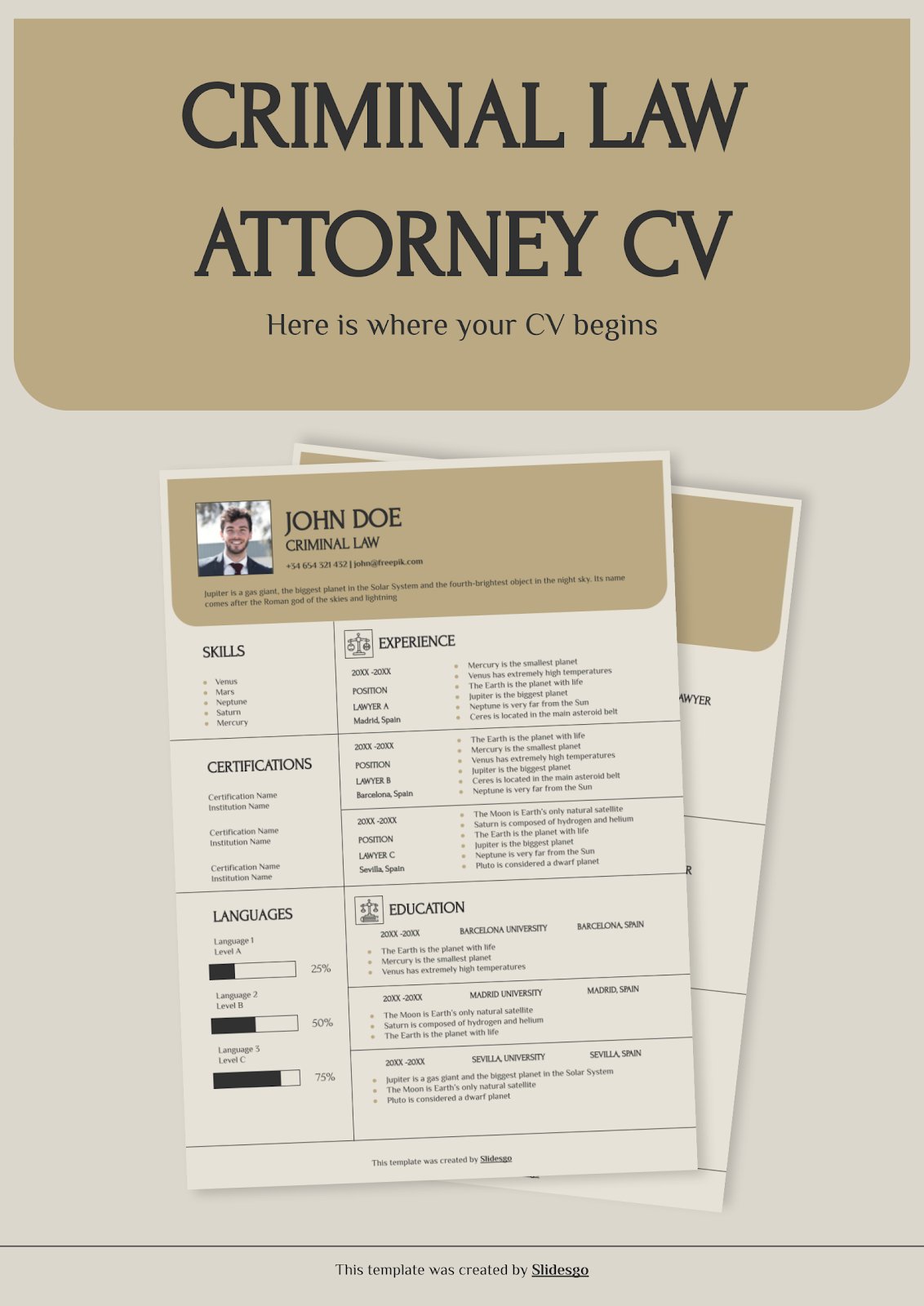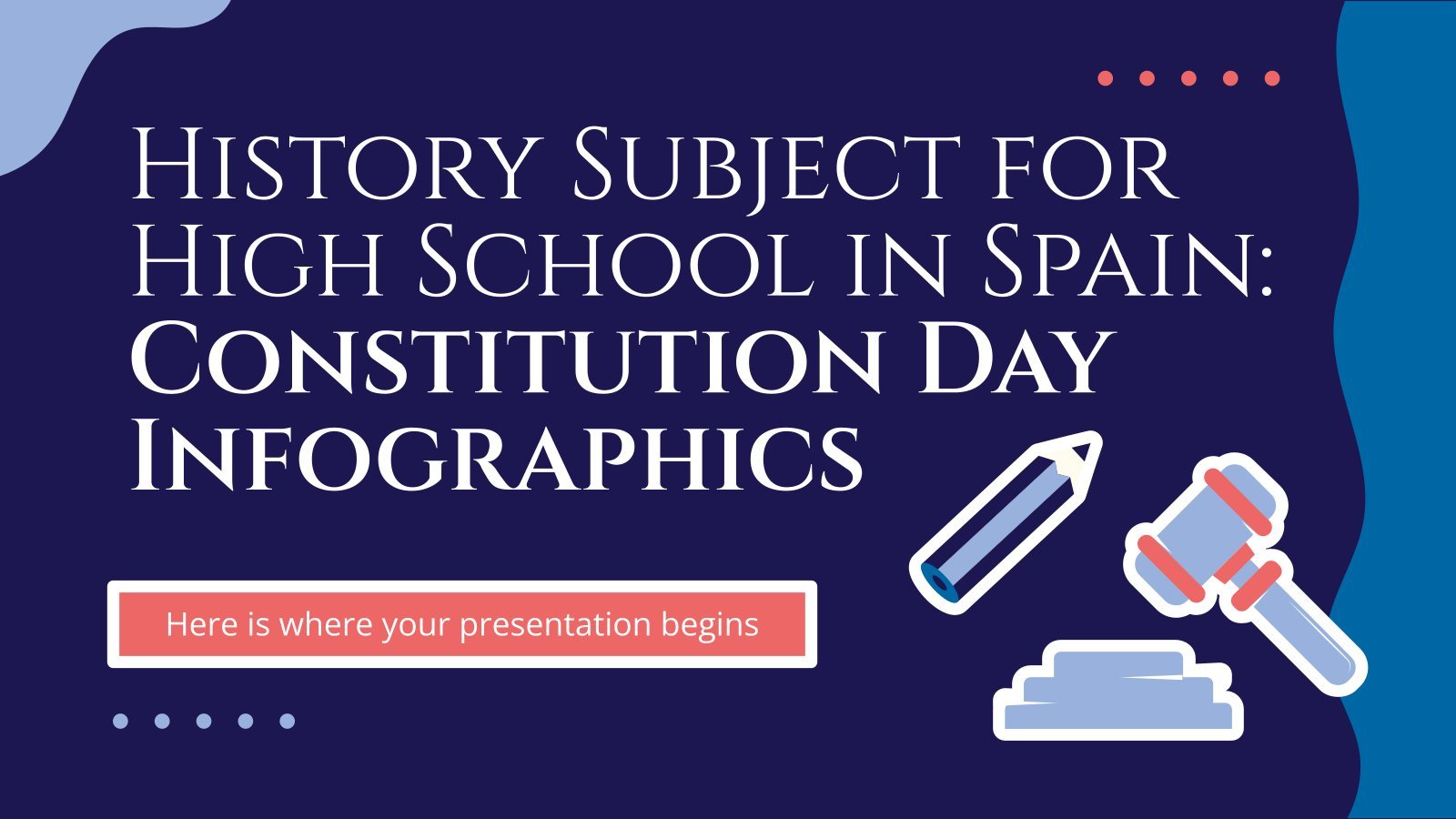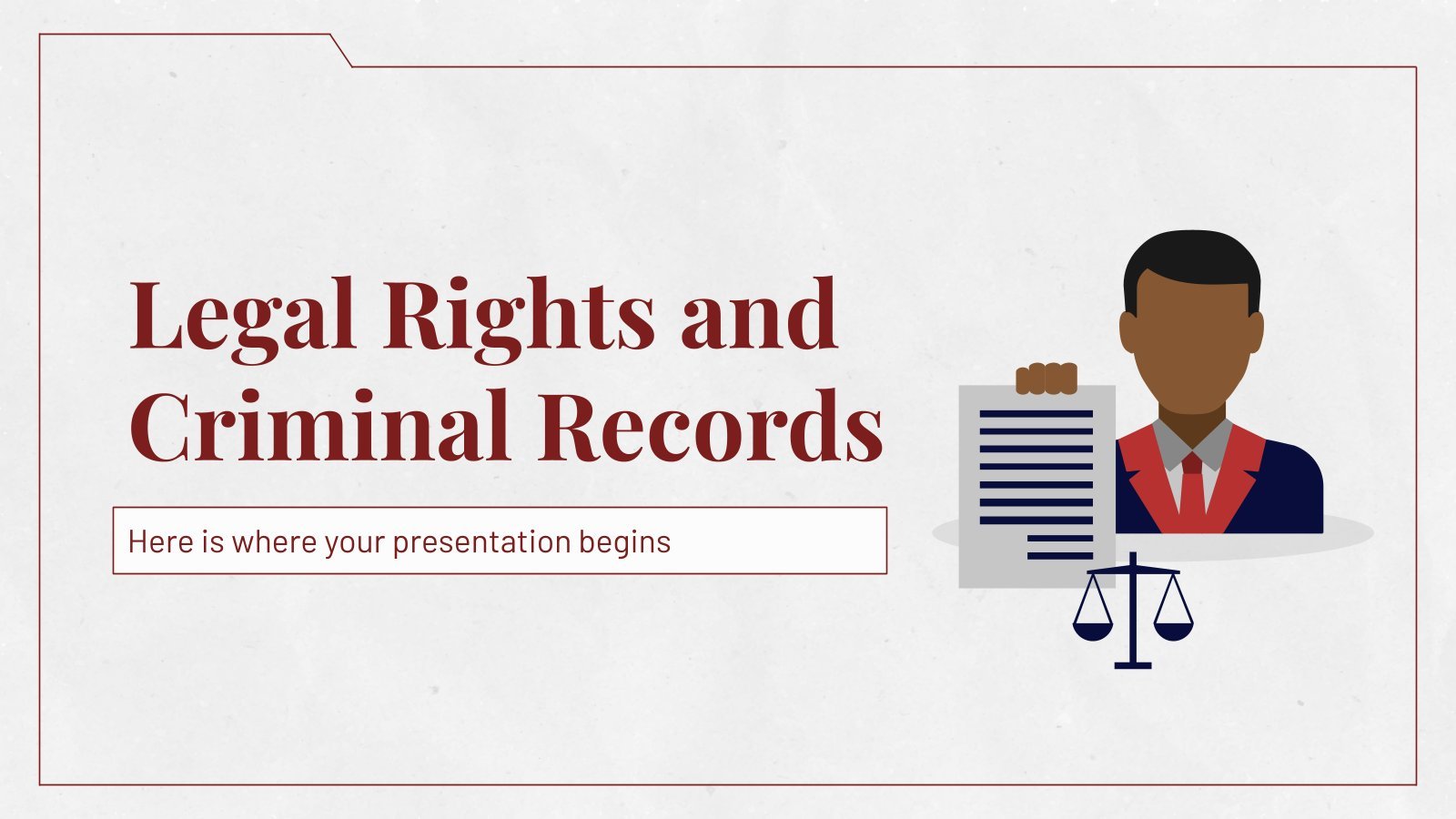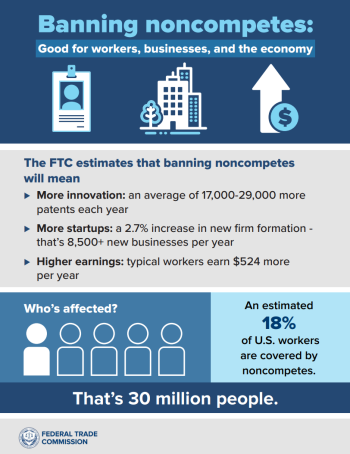50 Company Law Topics for Presentation
50 company law topics that you can use for a presentation:
1. “Corporate Governance and Its Significance in Modern Business” 2. “The Role of Shareholders in Company Law” 3. “Directors’ Duties and Responsibilities in Company Law” 4. “Corporate Social Responsibility (CSR) and Legal Obligations” 5. “Mergers and Acquisitions: Legal Aspects and Regulatory Compliance” 6. “Corporate Insolvency and the Legal Framework for Bankruptcy” 7. “The Concept of Limited Liability in Company Law” 8. “Legal Aspects of Corporate Financing: Equity vs. Debt” 9. “Shareholder Activism and Legal Implications” 10. “Regulatory Compliance and Reporting Requirements for Public Companies” 11. “Corporate Fraud and Legal Remedies” 12. “Corporate Restructuring and Legal Considerations” 13. “Protection of Minority Shareholder Rights in Company Law” 14. “Corporate Compliance and Ethics Programs” 15. “Legal Aspects of Initial Public Offerings (IPOs)” 16. “Corporate Governance in Family-Owned Businesses” 17. “Legal Challenges in Cross-Border Business Operations” 18. “Share Buybacks and Legal Frameworks” 19. “Insider Trading Laws and Regulations” 20. “Legal Implications of Corporate Taxation” 21. “Corporate Transparency and Disclosure Laws” 22. “The Role of Auditors in Ensuring Corporate Accountability” 23. “Legal Aspects of E-commerce and Online Businesses” 24. “Corporate Environmental Responsibility and Legal Compliance” 25. “Legal Issues in Corporate Partnerships and Joint Ventures” 26. “Corporate Board Structures and Legal Requirements” 27. “Legal Aspects of Executive Compensation and Pay Equity” 28. “Corporate Intellectual Property Rights Protection” 29. “Corporate Data Privacy and GDPR Compliance” 30. “Legal Challenges in Corporate Dispute Resolution” 31. “Legal Aspects of Employee Stock Ownership Plans (ESOPs)” 32. “Corporate Compliance in Antitrust and Competition Laws” 33. “Legal Implications of Corporate Whistleblower Programs” 34. “Corporate Governance in Not-for-Profit Organizations” 35. “Legal Aspects of Corporate Real Estate Transactions” 36. “Regulatory Compliance in the Healthcare and Pharmaceutical Industry” 37. “Legal Considerations in International Business Expansions” 38. “Corporate Ethics and Anti-Corruption Compliance” 39. “Legal Aspects of Intellectual Property Licensing” 40. “Corporate Bankruptcy and Restructuring Laws” 41. “Legal Challenges in the Energy and Utilities Sector” 42. “Corporate Compliance in the Food and Beverage Industry” 43. “Legal Implications of Technology Transfer and Licensing” 44. “Corporate Governance in the Telecommunications Industry” 45. “Legal Aspects of Corporate Sustainability Reporting” 46. “Regulatory Compliance in the Financial Services Industry” 47. “Legal Challenges in the Automotive and Manufacturing Sector” 48. “Corporate Compliance with Environmental Regulations” 49. “Legal Aspects of Corporate Governance in the Entertainment Industry” 50. “Cybersecurity Compliance in Corporate Data Management” These topics cover a wide range of subjects within company law, and you can choose one that aligns with your presentation goals and audience interests.

Leave a Comment Cancel reply
Save my name, email, and website in this browser for the next time I comment.

- Accident Law
- Business Law
- Copyright Law
- Criminal law
- International Law
- Real Estate Law
- Traffic law
- Legal Advice
- Privacy Policy
- Cookie Policy
- Terms of Use
Corporate Law Topics for Presentation
Corporate Law Topics for Presentation – I’ve seen many presentations over the years as a professional corporate law attorney. I’m always amazed at how well-crafted and persuasive they can be.
Unfortunately, the presentation market is often crowded. There’s a limited amount of time during which you can grab the audience’s attention.
And yet, there are so many ways to keep your audience’s attention.
Many law students are interested in becoming corporate lawyers after graduation. However, the reality is that the legal job market is very competitive. So, what topics can help prepare you for a career in law?
As a lawyer, you will be responsible for drafting contracts and negotiating deals between businesses. These deals include mergers, acquisitions, IPOs, private placements, and others. In addition, you will need to know the laws that affect corporate transactions, such as securities, employment, tax, contracts, and many others.

Corporate Law – Overview
Corporate law is a branch of law that deals with the governance of businesses. A business can be a single company or a group of companies.
The term ‘corporation’ refers to a company legally separate from its shareholders and operating under its board of directors.
Corporations are required to operate within the rules and regulations the government sets. They must follow specific laws to remain in business .
Businesses are governed by the laws of the country where they are based. Some different countries can also rule them.
Corporate law may also be called ‘business law “.
In the United States , there are two main types of corporate law.
One is federal law, which is applied to corporations operating in the US.
The other is state law, which applies to corporations operating outside the US.
For example, the UK has its form of corporation law .
Some countries have a single law that applies to both types of corporations.
Corporate Laws – General
The business side of starting a new business is one of the most important factors to consider. If you’re starting a business in which you’re not personally involved, it’s crucial to understand the business’s laws.
It’s also important to realize that these laws don’t just apply to the United States. They can also apply to other countries.
So whether you’re planning on starting a business in the United States , Canada, Australia, or any other country, you need to know the applicable laws.
It’s also important to understand that laws can differ depending on your location. This means that you must be prepared to adapt your business plan to the laws of the countries where you want to operate.
When starting a business, there are several essential aspects to consider, including the legal structure, the ownership of the company, and what taxes you need to pay.

Corporate Laws – Specific Types of Companies
Corporate law is a branch of law concerned with the legal issues arising from the formation and governance of corporations.
It is one of the oldest areas of law and is still a vital area of study in many countries.
While the laws of each country may vary, certain basic principles govern a corporation’s operation.
Some of these include the principle of limited liability and the right to sue the company for any wrongdoing.
However, while looking for shortcuts to make money online may be tempting, it is important to understand that you should always go through the proper channels first.
This includes researching what people say about any service or product before jumping in headfirst.
If you are serious about making money online, you need to ensure that you are on a reliable platform.
There are many different ways to make money online.
You need to find a method that suits you best and that you can keep repeatedly doing.
If you would like to get started, then check out my free guide:
Corporate Laws – Specific Types of Contracts
Corporate law is one of the oldest professions in the world, dating back thousands of years. Many cultures throughout history have practiced it.
Today, the practice of corporate law is more complex than ever. A large body of law governs every aspect of corporations and their operations.
As a result, a small business owners may have to hire a lawyer to help them navigate the often complicated legal system.
Corporate law is a broad term. Corporate law is the legal system that applies to companies, organizations, and other similar entities. This is sometimes called “corporate law” and may include other legal issues, such as contracts and agreements.
It covers a wide range of subjects, including:
• Business structure
• Commercial law

Frequently Asked Questions (FAQs)
Q: How do you prepare for a corporate law presentation?
A: I like to prepare well in advance. I want to read the cases ahead of time to understand them and be prepared. It also helps to have a checklist of questions that you can use to ask the speaker.
Q: What are some tips for making a presentation?
A: Make sure you are organized and have all the necessary materials, such as copies of the cases you want to use, before you go. You should always have copies of your slides that you can use if someone wants to look at them or if you have any problems with the projector.
Q: If you’re presenting in front of a group, how do you prepare?
A: When presenting in front of a group, I make sure I have a clear outline of my presentation.
Q: Why did you choose this particular topic for your presentation?
A: I chose this topic because it encompasses everything I want to convey to the audience during my presentation.
Q: Can you provide a short overview of the different topics the Corporate Law course covers?
A: The topics covered in the Corporate Law course are: Corporations, Corporations, and Corporations. There are three distinct categories of corporations. These include Corporations, LLCs, and Corporations. An essential part of the class is learning about the basic principles of incorporation and taxation and the different types of business organizations. Other topics discussed in the course include Contracts, Business Organizations, Mergers & Acquisitions, and Joint Ventures.
Q: Is there anything else you’d like the audience to know?
A: The Corporate Law course is very comprehensive and rigorous. It is a full-year course.
Q: Where should law school students begin their research for a corporate presentation?
A: There are two ways to do it. You can research general principles about business and the law . Then you can focus on a specific area that interests you.
Q: Which of these topics should be discussed first?
A: At the beginning of a corporate presentation, discussing issues in the company’s context and business is good. A good example would be the concept of due diligence before hiring a new employee or purchasing equipment.
Q: Why should law students focus on an area of the law before they discuss general principles?
A: General principles are the basics, but law firms want to know what you know. If you clearly understand how laws affect businesses , they will be more likely to hire you to provide legal services to them.
Myths About Corporate Law
- Corporations are entities with their rights and duties.
- A corporation can exist without a person acting on its behalf.
- I want to be a corporate lawyer.
- People do not understand the law.
- People need to be trained in the law before they should be able to practice .
- There is no money in the law.
- A corporate lawyer will make more money than a lawyer who practices in other areas of law .
- A corporation is separate from its shareholders and directors.
- Law students should choose a specialty early in their education.
- Law School graduates should only be concerned with practicing law.
- Corporations are only interested in money; if you do not pay them, they will take your business away.
In conclusion, I want to remind you that you can choose the topic that interests you the most. You may wish to select a topic you are interested in or one that you think would be a valuable addition to your knowledge.
Corporate law is a vast field. It includes corporate governance, business structures, mergers and acquisitions, contracts, intellectual property, and tax law .
To succeed, you’ll need to study the different areas of corporate law so that you’re well-informed on the various topics you may need to know.
Regardless, there is no wrong way to go about choosing a topic. I hope you found this helpful.
I hope you enjoyed these blog conclusions and felt inspired to write your blog.
Feel free to share them with your friends and family or leave a comment below.
Remember, you have all the resources you need to be successful online.
Clyde Osborne
My passion is writing, blogging and speaking about issues related to children, women, social development, religion, politics and economics. I have written articles for magazines, newspapers and news websites. I have spoken at many conferences and events and published several books. I have worked as an editor and publisher of an international magazine and two online newspapers. In addition to my professional work, I am also very active in my community and I do volunteer work.
Related Posts

Go to film school or major in business law?

UM Law, Business Schools Launch Joint Degree Program

What is Corporate Law and How to Become a Corporate Lawyer

Semi-Truck Accident Lawsuit Cost in Wisconsin

Truck driver in fiery Colorado crash charged with forty counts, may also face a long time in jail

How to Choose a Car Accident Lawyer in Orlando?
© 2024 lawcer - All Rights Reserved lawcer .
Custom Essay, Term Paper & Research paper writing services
- testimonials
Toll Free: +1 (888) 354-4744
Email: [email protected]
Writing custom essays & research papers since 2008
60 best business law topics for research paper.

Business Law, also known as commercial law, is a set of integral laws that guide society. To write an impressive research paper on Business Law, it is vital to find a few business law paper topics that not only interest you but also offer scope for research and critical analysis.
You can then discuss the topics with your guide to shortlist the one that offers maximum scope to showcase your research capabilities and get good grades. Here is a list of some great topics for business law research paper, that you can consider. Take a look:
Advanced Business Law Research Topics
These are some advance business law topics that reflect in-depth subject knowledge and research capabilities:
- Can the Exclusion from antitrust laws be good?
- Essential details about Abercrombie and Race Discrimination.
- Various methods of treatments for Accidents in the workplace.
- Age Discrimination Act: What is it?
- How to Avoid sexual harassment lawsuits inside a company?
- How to identify Bankruptcy fraud?
- Everything about the Collective Bargaining Agreement.
- What is the Collective Bargaining Union?
- Corruption in Business Law: how to get rid of it?
- Hazards of the Construction Industry: What are the solutions provided by the Government?
- Effective methods to keep business running.
- Is Paternity leave for a father acceptable?
- Sexual Harassment Law: what does it say?
- What is the Sarbanes-Oxley Act?
- Health Insurance Portability and Accountability Act.
- How does piracy affect the profitability of a business?
- What is the Ocean Liner Contract system?
- What should be the level of confidentiality of trade secrets?
Interesting Business Law Topics for Research Paper
Here are some of the most well scoring and attention-grabbing business law topics to write about for your dissertation –
- The role of Law of Contracts in Business Transactions.
- Interpretations of The Law of Contract.
- A thorough investigation of the Contract Laws.
- The importance of Commercial Law.
- An explanation of the working of Contracts.
- How does Legislature impact the interpretation of Contracts?
- Analysis of the difficulties faced by the business due to pursuing Commercial or Regular Lease.
- Analysis of the Structure of Transactions under Business Law.
- What is the role of a Director’s Guarantee under Business Law?
- Investigating the practical use of Copyright and Trademark by business entities.
- The role played by Copyrights and Trademarks in relation to Business Transactions.
- Everything you need to know about Advertising Law.
- The consequences of Copyright Infringement.
- The effect of Business Law on Commercial Transactions and Licensing.
- The application of Termination Agreements and Contract Law in Business Transactions.
Business Contract Law Topics for Research Paper
These are a few research topics in business law that can be used as a guide to create your paper and score well:
- The importance of Contract Law for small or single entrepreneurs.
- Contract Law and why is it essential in a versatile global business environment?
- The role of Contract Law in relation to shipping and transportation across five countries in the world.
- The importance of the Mudaraba contract in context with Islamic Law.
- Islamic Law and limitations in the implementation of Contract Law.
- A thorough investigation of the Tort Liability Law in the United Kingdom.
- The analysis and comparison of the Contract Law for Small, Medium, and Large enterprises in the United Kingdom.
- What is the significance of online privacy policies on the Contract Law?
- The role of the state in implementation of the Contract Law
- What is the difference between the UK and the EU after the implementation of the Brexit Contract Law?
- Everything you need to know about code, law, and their interpretations in the digital world.
- A discussion of the Penalty under Contract Law in context with the English Law.
- The difference between verbal commitments, non-contractual relations, and Contract Law: What problems are faced during their enforcement?
- An investigation of the impact of Labour Laws within the country.
- Emerging Economies: Analyzing the enforcement of Contract Law
International Business Law Topics for Research Paper
If you want to work in the arena of business law these topics are sure to be a big help with research paper:
- The right of the company to choose its nationality
- International arbitration – best policies to choose
- Is it still possible to buy the services of judges in first world countries?
- The Understanding impact of the litigation processes on small and medium business entities operating in international arenas
- The Doctrine of Separate Legal personality and its significance in International business
- Is there a way to avoid litigation procedures in foreign lands?
- What are the cases in international business when the data security and confidentiality policies are not applied?
- Solutions for stopping former employees from joining rival companies.
- Implementation of employee non-disclosure agreement across national boundaries
- Is it legal to say no to paternity leaves for fathers when working with foreign employees?
- Drawing up international extractive contracts for oil and mining companies
- Can domestic laws be incorporated in international business agreements – the consequences.
For most law students curriculums are extensive and topic research can be a time consuming task with other college activities. If you are worried about finding some good business law paper topics to work on or need professional help to write an effective research paper, we have the answers. Get in touch with us for effective research paper topics for business law class and we will be happy to assist with your assignment.

Business Law Research Paper Topics

This page presents a comprehensive list of business law research paper topics , offering students studying law valuable insights and opportunities to explore the diverse landscape of this dynamic discipline. From contract law to intellectual property rights, these topics are divided into 10 categories, each encompassing various legal principles and regulations that govern business interactions. In addition to the extensive list, students will discover valuable tips on selecting the most suitable research topic and employing effective strategies to craft a well-structured business law research paper. Furthermore, for students seeking professional support in their academic journey, iResearchNet offers custom writing services, featuring a team of expert writers committed to delivering personalized solutions and top-quality work. Embark on this scholarly journey to explore the intricate intersections of legal scholarship and practical applications within the realm of business and commerce.
100 Business Law Research Paper Topics
In the realm of business law, a plethora of legal issues and topics demand exploration and analysis. As students embark on their research paper journey, the challenge lies in selecting a compelling and relevant topic that aligns with their interests and academic goals. This section presents a comprehensive list of 100 business law research paper topics, thoughtfully divided into 10 categories, to aid students in navigating the diverse landscape of business law. From corporate governance to international trade law, each category delves into specific aspects of business legalities, offering a wealth of opportunities for students to engage in legal scholarship and address real-world business challenges.
Academic Writing, Editing, Proofreading, And Problem Solving Services
Get 10% off with 24start discount code.
Corporate Governance and Ethics
- The Role of Corporate Social Responsibility in Contemporary Business Practices.
- Analyzing the Impact of Corporate Governance on Business Performance.
- The Legal and Ethical Implications of Executive Compensation in Corporations.
- Shareholder Activism: Balancing Rights and Responsibilities.
- The Role of Boards of Directors in Corporate Decision-Making.
- Corporate Fraud and its Impact on Stakeholders and the Economy.
- Insider Trading: Legal, Ethical, and Regulatory Perspectives.
- The Role of Independent Directors in Ensuring Corporate Accountability.
- Evaluating the Effectiveness of Whistleblower Protection Laws in Corporations.
- The Intersection of Corporate Governance and Stakeholder Theory.
Contract Law and Commercial Transactions
- Unconscionability and Its Application in Contract Law.
- The Legal Implications of E-Signatures in International Commercial Transactions.
- Analyzing the Legal Enforceability of Clickwrap and Browsewrap Agreements.
- The Doctrine of Frustration in Contract Law: A Comparative Analysis.
- The Role of Good Faith and Fair Dealing in Contractual Relationships.
- The Legal Implications of Force Majeure Clauses in Business Contracts.
- The U.N. Convention on Contracts for the International Sale of Goods (CISG) and Its Impact on Global Trade.
- The Validity and Enforcement of Liquidated Damages in Commercial Contracts.
- A Comparative Study of Common Law and Civil Law Approaches to Contract Law.
- The Legal Implications of Breach of Contract and Remedies Available to Injured Parties.
Intellectual Property Law
- Patent Law and the Protection of Innovations in the Technological Era.
- Copyright Infringement in the Digital Age: Challenges and Solutions.
- Trademark Dilution: Balancing the Rights of Trademark Owners and Free Speech.
- The Role of Intellectual Property Rights in Promoting Innovation and Creativity.
- The Intersection of Intellectual Property Law and Biotechnology.
- Trade Secrets Protection: Legal Mechanisms and Challenges.
- The International Protection of Intellectual Property Rights: TRIPS Agreement.
- Patent Trolls and their Impact on Innovation and Competition.
- The Legal Implications of Open Source Software in Business.
- The Role of Intellectual Property Rights in Technology Transfer and International Trade.
Employment and Labor Law
- Discrimination in the Workplace: Legal Protections and Challenges.
- The Gig Economy and Its Implications on Labor Law and Worker Rights.
- Workplace Privacy: Balancing Employer Interests and Employee Rights.
- The Legal Implications of Non-Compete Agreements on Employee Mobility.
- The Intersection of Labor Law and Collective Bargaining.
- Occupational Health and Safety Regulations: Ensuring Employee Protection.
- The Legal and Ethical Implications of Employee Monitoring.
- The Gig Economy: Reimagining Employment Law in the Age of Freelancing.
- Workplace Harassment Prevention and Legal Compliance.
- The Role of Labor Unions in Shaping Labor Law and Worker Rights.
Business and Competition Law
- Antitrust Laws and Their Impact on Market Competition.
- The Role of Merger Control in Preventing Anti-Competitive Practices.
- Vertical Restraints in Business Contracts: Legal Analysis and Enforcement.
- The Intersection of Intellectual Property Law and Competition Law.
- The Legal Implications of Price Fixing and Bid Rigging.
- The Role of Competition Law in Regulating Online Platforms and Marketplaces.
- Evaluating the Effectiveness of Leniency Programs in Antitrust Enforcement.
- The Impact of Big Tech Companies on Competition and Consumer Welfare.
- The Challenges of Regulating Global Mergers and Acquisitions.
- The Role of Competition Authorities in Promoting Fair Competition and Market Efficiency.
Banking and Financial Regulation
- The Role of Central Banks in Financial Regulation and Stability.
- The Legal Implications of Cryptocurrencies and Blockchain Technology in Banking.
- Financial Derivatives: Legal Issues and Regulatory Challenges.
- The Impact of Basel III Accords on Banking Regulation and Risk Management.
- The Intersection of Financial Regulation and Fintech Innovation.
- The Legal and Ethical Implications of Insider Trading in the Financial Markets.
- Credit Rating Agencies: Their Role in Financial Regulation and Investor Confidence.
- The Challenges of Cross-Border Banking Regulation in the Globalized Economy.
- The Dodd-Frank Wall Street Reform and Consumer Protection Act: A Critical Assessment.
- The Legal Framework of Bank Resolution and Systemic Risk Management.
Taxation and Business Transactions
- Transfer Pricing in International Business Transactions: Legal and Regulatory Aspects.
- The Legal Implications of Corporate Tax Avoidance and Evasion.
- Tax Incentives for Foreign Direct Investment: Promoting Economic Growth or Unfair Competition?
- The Impact of Tax Treaties on Cross-Border Business Activities.
- Tax Compliance and Enforcement: Balancing Taxpayer Rights and Government Revenue Collection.
- The Role of Tax Havens in International Tax Planning.
- The Legal Implications of Digital Economy Taxation.
- The Challenges of Regulating E-Commerce and Cross-Border Taxation.
- The Legal and Ethical Aspects of Tax Planning and Avoidance Strategies.
- Tax Policy and Its Impact on Business Decisions and Investment Behavior.
Environmental and Energy Law
- The Legal Framework for Environmental Protection and Conservation.
- Environmental Impact Assessments: Balancing Business Interests and Ecological Preservation.
- Climate Change Mitigation and Adaptation: The Role of International Law.
- The Legal and Ethical Implications of Fracking and Hydraulic Fracturing.
- The Intersection of Environmental Law and Corporate Social Responsibility.
- Renewable Energy Regulation and Incentives: Promoting Sustainable Development.
- The Legal and Regulatory Challenges of Waste Management and Pollution Control.
- The Legal Implications of Environmental Justice and Community Rights.
- The Role of International Agreements in Addressing Transboundary Environmental Issues.
- The Impact of Energy Regulation on the Transition to Clean and Renewable Energy Sources.
International Trade and Investment Law
- The Legal Framework of International Trade and Investment Agreements.
- Investor-State Dispute Settlement (ISDS) Mechanisms: Balancing Investor Protection and State Sovereignty.
- The World Trade Organization (WTO) and Its Impact on Global Trade.
- Bilateral Investment Treaties (BITs): Assessing Their Effectiveness in Promoting Foreign Investment.
- Trade Wars and Tariffs: Analyzing the Legal and Economic Implications.
- The Intersection of Intellectual Property Rights and International Trade.
- The Legal Implications of Trade Sanctions and Their Impact on Global Commerce.
- Free Trade Agreements (FTAs) and Regional Economic Integration.
- The Legal and Ethical Aspects of Import-Export Controls and Trade Embargoes.
- The Role of Trade Remedies in Safeguarding Domestic Industries.
Cybersecurity and Data Privacy
- The Legal and Ethical Implications of Data Breaches and Cybersecurity Incidents.
- Data Protection Laws and Privacy Rights: A Comparative Analysis.
- The Intersection of Cybersecurity and Intellectual Property Protection.
- The Role of International Law in Addressing Cybercrimes and Cyber Espionage.
- The Legal Challenges of Cross-Border Data Transfers and Data Localization.
- The Regulation of Artificial Intelligence and Machine Learning Algorithms in Business.
- Cybersecurity Compliance and Risk Management in the Corporate Sector.
- The Legal Implications of Internet of Things (IoT) Devices and Data Privacy.
- The Role of Cyber Insurance in Mitigating Cybersecurity Risks.
- The Legal and Regulatory Challenges of Digital Identity and Biometric Data.
In conclusion, the comprehensive list of 100 business law research paper topics presented in this section offers a diverse array of subjects for students to explore and engage with. From corporate governance and contract law to cybersecurity and data privacy, each category represents critical aspects of business law that intersect with real-world legal challenges faced by businesses and individuals alike. By selecting a research topic from this list, students can delve into the multifaceted world of business law, contribute to legal scholarship, and gain insights into the practical implications of legal principles on commerce and society.
As students embark on their research journey, they are encouraged to consider their interests, expertise, and academic aspirations while choosing a research topic that aligns with their individual goals. Additionally, a well-defined research question and a structured approach to the research process will help students navigate the complexities of business law and produce an insightful and impactful research paper. Whether examining the legal implications of emerging technologies or analyzing the role of regulations in shaping business practices, each chosen topic presents an opportunity to contribute to the advancement of legal knowledge and influence the ever-changing landscape of business law.
For those seeking professional support in their research endeavors, iResearchNet’s custom writing services are readily available, offering expert assistance from degree-holding writers who understand the intricacies of business law and can deliver customized solutions tailored to students’ specific needs. The journey to explore the world of business law through research and academic inquiry awaits, and with iResearchNet’s support, students can confidently navigate the complexities of legal scholarship and unveil the legal intricacies that shape the dynamic world of commerce.
Business Law: Exploring the Range of Research Paper Topics
Business law, also known as commercial law or corporate law, is a multifaceted field that governs the legal aspects of business transactions, operations, and interactions. It provides the regulatory framework necessary to ensure fair competition, protect consumer rights, uphold contractual obligations, and maintain the integrity of financial systems. As students delve into the world of business law, they uncover a rich tapestry of legal principles and doctrines that underpin the intricate workings of modern commerce.
This section aims to provide students with a comprehensive understanding of the diverse range of business law research paper topics. From corporate governance and intellectual property to employment law and environmental regulations, each aspect offers unique insights and opportunities for legal scholarship. By exploring the following key themes, students can gain an appreciation for the multifaceted nature of business law and its profound impact on both the business world and society at large.
- Corporate Governance and Ethics : One of the central pillars of business law is corporate governance, which deals with the internal structure, rules, and practices that guide the management and decision-making of corporations. Topics in this area often revolve around the roles and responsibilities of boards of directors, executive compensation, shareholder activism, and the legal and ethical implications of corporate actions. Understanding how corporate governance mechanisms operate is crucial for maintaining transparency, accountability, and responsible business conduct.
- Contract Law and Commercial Transactions : Contract law is fundamental to business transactions, as it governs the legally binding agreements between parties involved in commercial dealings. Research in this domain explores various aspects, such as contract formation, interpretation, breach, and remedies. Additionally, students can delve into specific types of contracts, such as sales agreements, employment contracts, and international trade agreements. Examining how contracts are structured, enforced, and regulated allows for a deeper understanding of the legal framework that underpins business relationships.
- Intellectual Property Law : Intellectual property (IP) rights play a critical role in protecting innovations, creative works, and proprietary assets within the business realm. Research topics in this area may cover patent law, copyright law, trademark law, and trade secret protection. Understanding the legal mechanisms that safeguard intellectual property fosters innovation, promotes creativity, and ensures fair competition in the global market.
- Employment and Labor Law : The relationship between employers and employees is governed by employment and labor law, which aims to protect workers’ rights, ensure fair treatment, and regulate labor practices. Topics in this domain encompass discrimination in the workplace, labor unions, workplace privacy, and the legal implications of emerging work arrangements such as the gig economy. Researching employment law allows students to explore the evolving dynamics of the modern workforce and the legal protections that safeguard employee welfare.
- Business and Competition Law : Business law intersects with competition law to maintain fair market competition, prevent anti-competitive practices, and protect consumers. Topics in this category may include antitrust laws, merger control, trade practices, and regulations related to monopolies and market dominance. Investigating the legal mechanisms that foster competitive markets ensures a level playing field for businesses and safeguards the interests of consumers.
- Banking and Financial Regulation : The financial sector operates within a complex legal framework to ensure stability, transparency, and consumer protection. Research topics in this area may encompass banking regulations, financial derivatives, securities laws, and the role of central banks in monetary policy. Understanding the legal aspects of financial regulation is vital for maintaining financial stability and investor confidence.
- Taxation and Business Transactions : Taxation is a crucial aspect of business operations, impacting financial decisions and strategies. Research topics in this domain may include corporate taxation, international tax planning, tax incentives, and the legal implications of tax evasion and avoidance. Understanding the complexities of tax law allows businesses to navigate the regulatory landscape while contributing to government revenue collection.
- Environmental and Energy Law : Environmental and energy law focuses on regulating the impact of business activities on the environment and promoting sustainable practices. Topics in this area may cover environmental impact assessments, climate change mitigation, renewable energy regulations, and waste management policies. Exploring the legal aspects of environmental protection empowers businesses to align their operations with sustainable practices and social responsibility.
- International Trade and Investment Law : As businesses increasingly engage in global markets, international trade and investment law become crucial for understanding the legal framework that governs cross-border transactions and investments. Topics in this domain may include trade agreements, investor-state dispute settlement, and regulations pertaining to international trade and foreign direct investment. Researching international trade and investment law facilitates a broader understanding of the interconnectedness of the global economy.
- Cybersecurity and Data Privacy : In the digital era, cybersecurity and data privacy have become paramount concerns for businesses. Research topics in this area may cover data breaches, cybercrime legislation, data protection laws, and the legal implications of emerging technologies like artificial intelligence and the Internet of Things. Understanding the legal and ethical aspects of data protection helps businesses safeguard sensitive information and protect user privacy.
Business law encompasses a vast array of legal principles and regulations that govern the multifaceted world of commerce. By exploring the diverse range of business law research paper topics presented in this section, students can gain a deeper understanding of the legal challenges, complexities, and opportunities that arise within the business landscape. Whether investigating corporate governance practices, analyzing contract law implications, or exploring environmental regulations, each research topic provides a window into the intricate workings of the business world.
As students engage in their research journey, they are encouraged to critically examine the legal issues, implications, and real-world applications of their chosen business law research paper topics. By employing rigorous research methodologies and legal analysis, students can contribute to legal scholarship, influence business practices, and address contemporary challenges faced by businesses and society alike. Additionally, for those seeking expert guidance and support in their research endeavors, iResearchNet’s custom writing services offer tailored solutions from experienced writers, facilitating a seamless and successful research experience.
As the study of business law continues to evolve in response to societal and technological advancements, students embarking on this academic pursuit will find themselves at the forefront of shaping the legal landscape that underpins global commerce. By embracing the complexities of business law and leveraging the power of legal research, students can unlock new insights, foster innovative solutions, and contribute to the advancement of legal knowledge within the context of business and beyond.
How to Choose Business Law Research Paper Topics
Selecting a suitable research paper topic is a critical step in the academic journey, especially for students studying business law. The chosen topic sets the foundation for the entire research process and determines the scope and depth of the paper. As the field of business law encompasses a wide range of legal principles and industries, students may find it challenging to identify the most relevant and compelling research area. This section aims to guide students through the process of choosing business law research paper topics that align with their interests, academic goals, and the practical implications of their research.
- Identify Your Interests and Passions : The first step in selecting a research paper topic is to reflect on your personal interests and passions within the field of business law. Consider which aspects of business law intrigue you the most and which topics evoke curiosity. Whether you are fascinated by corporate governance, intellectual property, or international trade, choosing a topic that resonates with your interests will fuel your motivation and engagement throughout the research process.
- Analyze Current Legal Issues and Developments : Business law is a dynamic field, constantly evolving to address emerging legal challenges and changes in the business landscape. Stay updated with current legal issues, landmark court cases, and regulatory developments within the business world. Analyzing current events and legal debates can spark ideas for research topics that contribute to ongoing discussions and address contemporary concerns.
- Conduct Preliminary Research : Before finalizing a research paper topic, conduct preliminary research to understand the existing literature and scholarship on potential areas of interest. Reading academic articles, books, and research papers related to your preferred topics will give you insights into the gaps in knowledge and areas that warrant further investigation. This step will also help you refine your research question and define the scope of your study.
- Consider Practical Relevance : Business law research often extends beyond theoretical exploration, with practical implications that impact real businesses and individuals. Consider topics that have practical relevance and address legal issues faced by businesses, entrepreneurs, consumers, or society at large. Research papers that offer practical solutions or insights into legal challenges tend to be more impactful and resonate with a wider audience.
- Evaluate the Feasibility of the Topic : As you assess potential research topics, consider their feasibility in terms of data availability, research resources, and time constraints. Some topics may require extensive data collection or access to specific legal cases, while others may demand specialized expertise. Ensure that the chosen topic is feasible within the scope of your research capabilities and academic timeline.
- Seek Inspiration from Coursework : Reviewing your coursework and class materials in business law can be a valuable source of inspiration for research topics. Reflect on the topics covered in your lectures, seminars, and coursework assignments. You may find a particular area or legal concept that sparks your interest and inspires you to delve deeper into its legal intricacies through independent research.
- Consult with Professors and Peers : Discuss your research ideas with professors, academic advisors, and fellow students. They can provide valuable feedback, offer suggestions for potential research directions, and help you narrow down your options. Collaborating with others in the academic community can lead to unique perspectives and enhance the quality of your research paper.
- Think Beyond Traditional Topics : While traditional business law topics like contract law and corporate governance are essential, consider exploring niche areas or emerging legal issues. Topics related to technology, artificial intelligence, digital currencies, and environmental sustainability are gaining prominence in the business world and present exciting opportunities for cutting-edge research.
- Consider Cross-Disciplinary Approaches : Business law often intersects with other disciplines such as economics, sociology, ethics, and environmental studies. Consider adopting a cross-disciplinary approach to your research, which allows you to draw insights from various fields and enriches the depth of your analysis.
- Craft a Well-Defined Research Question : Once you have identified a potential research topic, transform it into a well-defined research question. A clear and specific research question will guide your investigation, focus your research efforts, and ensure that your paper remains coherent and organized. Strive to develop a research question that is both original and relevant, contributing to the existing body of knowledge in business law.
Choosing a business law research paper topic requires careful consideration of your interests, academic goals, and the practical implications of your research. By identifying areas of personal interest, analyzing current legal issues, and conducting preliminary research, you can discover business law research paper topics that excite and inspire you. As you evaluate the feasibility and practical relevance of your chosen topic, seek guidance from professors and peers to refine your research question and direction.
Selecting a compelling and well-defined research topic sets the stage for a rewarding research journey that contributes to the advancement of legal knowledge within the dynamic realm of business law. By embracing innovative approaches, exploring emerging legal challenges, and delving into cross-disciplinary perspectives, students can unveil new insights, provide practical solutions, and make a meaningful impact within the ever-evolving landscape of business law.
How to Write a Business Law Research Paper
Writing a business law research paper requires a structured and systematic approach to effectively convey your ideas, arguments, and findings. As a student delving into the complexities of business law, you must not only demonstrate a comprehensive understanding of legal principles but also showcase critical thinking, analytical skills, and the ability to communicate complex legal concepts concisely. This section provides a step-by-step guide on how to write a compelling business law research paper that engages your readers, advances legal scholarship, and reflects your expertise in the field.
- Select a Well-Defined Research Topic : Before you begin writing, ensure that you have a well-defined research topic or question that aligns with your interests and academic objectives. Your research topic should be specific, focused, and capable of addressing legal issues or gaps in knowledge within the realm of business law. A clear research question will guide your research and structure your paper, ensuring a coherent and logical flow of ideas.
- Conduct Thorough Research : Once you have a research topic, embark on a comprehensive research journey to gather relevant and credible sources. Utilize academic databases, legal journals, books, and reputable online resources to access primary and secondary materials related to your topic. Carefully evaluate and critically analyze the literature to develop a strong theoretical foundation for your research.
- Create an Outline : Organize your ideas and research findings into a well-structured outline. An outline serves as the skeleton of your research paper and helps you maintain a logical progression of arguments. Include an introduction, literature review, methodology (if applicable), main body sections, analysis of findings, and a conclusion in your outline.
- Write a Captivating Introduction : Begin your research paper with a captivating introduction that introduces your research topic, provides context, and presents your research question or thesis statement. Engage your readers with a thought-provoking opening, outlining the significance of your research and its relevance to the field of business law.
- Conduct a Thorough Literature Review : The literature review section should demonstrate your understanding of existing scholarship related to your research topic. Summarize and critically evaluate relevant studies, legal cases, and academic works. Identify gaps in the literature and highlight how your research will contribute to filling those gaps.
- Define Your Methodology (if applicable) : If your research involves empirical data collection or qualitative analysis, outline your research methodology in this section. Describe your research design, data collection methods, sample selection, and data analysis techniques. Justify your chosen methodology and explain how it aligns with your research objectives.
- Present a Comprehensive Analysis : In the main body sections of your research paper, present a comprehensive analysis of your research topic. Use clear and concise language to articulate your arguments and support them with evidence from legal cases, statutes, and scholarly sources. Address counterarguments and demonstrate your ability to critically assess different perspectives.
- Use Legal Citations and Referencing : Incorporate accurate legal citations and references throughout your research paper. Use the appropriate legal citation style, such as Bluebook, APA, MLA, or Chicago, to ensure proper attribution of sources and maintain academic integrity.
- Maintain Clarity and Conciseness : Business law research papers can be complex, but strive to maintain clarity and conciseness in your writing. Avoid jargon and use clear language to communicate legal concepts effectively. Keep paragraphs focused on specific ideas and avoid unnecessary repetition.
- Craft a Compelling Conclusion : In the conclusion, restate your research question or thesis and summarize the key findings and arguments presented in your paper. Reflect on the implications of your research and its potential impact on the field of business law. Leave readers with a lasting impression by emphasizing the significance of your work and suggesting avenues for further research.
Writing a business law research paper requires a methodical approach that includes selecting a well-defined research topic, conducting thorough research, and creating a structured outline. A compelling introduction should draw readers into your research, while a literature review showcases your understanding of existing scholarship. Whether your research involves empirical data or legal analysis, maintain clarity and conciseness throughout your paper. Use accurate legal citations and references, and craft a compelling conclusion that highlights the contributions of your research and sets the stage for future scholarly endeavors.
As you progress through the process of writing your business law research paper, remember to seek feedback from professors and peers. Embrace the challenges of legal research and writing, and view each stage as an opportunity to enhance your critical thinking, communication skills, and expertise in the field of business law. By adhering to this comprehensive guide and approaching your research paper with dedication and enthusiasm, you will produce a well-crafted, insightful, and impactful contribution to the world of business law scholarship.
iResearchNet’s Custom Research Paper Writing Services
At iResearchNet, we understand the demands and complexities faced by students studying business law. Writing a high-quality research paper in this field requires a deep understanding of legal principles, critical analysis, and effective communication skills. As a leading academic writing service, we are committed to providing students with the support they need to excel in their academic endeavors. Our custom business law research paper writing services offer expert assistance from experienced writers, ensuring that students receive top-notch papers tailored to their unique requirements. In this section, we highlight the key features and benefits of our services, ensuring that students can confidently embark on their research journey with our dedicated support.
- Expert Degree-Holding Writers : At iResearchNet, we take pride in our team of expert writers who hold advanced degrees in business law and related fields. Our writers have a comprehensive understanding of legal principles, ensuring that your research paper is in the hands of a qualified professional who can provide valuable insights and in-depth analysis.
- Custom Written Works : We recognize the importance of originality and academic integrity in research papers. Our custom business law research papers are crafted from scratch, tailored to your specific instructions and research topic. We do not tolerate plagiarism and guarantee 100% unique and authentic papers.
- In-Depth Research : Research is at the heart of every high-quality research paper. Our writers conduct thorough and comprehensive research to gather relevant and credible sources for your business law research paper. They delve into legal databases, academic journals, and reputable resources to ensure that your paper is well-supported with evidence and references.
- Custom Formatting : Different academic institutions and journals may require specific formatting styles for research papers. Our writers are well-versed in various formatting styles, including APA, MLA, Chicago/Turabian, and Harvard. Rest assured that your research paper will be formatted according to the prescribed guidelines.
- Top Quality : Quality is our utmost priority. Our team of experienced editors meticulously review and polish each research paper to ensure that it meets high academic standards. We pay attention to the clarity of ideas, coherence of arguments, and adherence to academic conventions.
- Customized Solutions : We understand that every research paper is unique, with its own set of requirements and objectives. Our custom business law research paper writing services offer personalized solutions to cater to your specific needs and academic goals.
- Flexible Pricing : As a student-oriented writing service, we are mindful of the budget constraints faced by students. Our pricing model is designed to be affordable and transparent. We offer flexible pricing options to accommodate varying academic levels and deadlines.
- Short Deadlines : We recognize that research paper deadlines can be tight, and students may find themselves in urgent need of assistance. Our writers are capable of delivering high-quality research papers within short deadlines, with a turnaround time as fast as three hours.
- Timely Delivery : We value punctuality and understand the importance of meeting academic deadlines. Our writing team works diligently to ensure that your custom business law research paper is delivered on time, allowing you sufficient time for review and revisions.
- 24/7 Support : Our customer support team is available round the clock to address your queries and provide assistance at any stage of the writing process. Feel free to reach out to us anytime, and we will be more than happy to help you.
- Absolute Privacy : We prioritize the confidentiality and privacy of our clients. Your personal information and details of the services provided will be kept strictly confidential, ensuring a secure and safe experience with iResearchNet.
- Easy Order Tracking : With our user-friendly platform, you can easily track the progress of your research paper. Stay informed about each stage of the writing process and communicate with your assigned writer as needed.
- Money Back Guarantee : Your satisfaction is of paramount importance to us. In the rare event that you are not satisfied with the final paper, we offer a money-back guarantee to ensure your peace of mind.
At iResearchNet, we take pride in our commitment to excellence and the provision of custom business law research paper writing services that cater to the unique needs of students. With expert writers, in-depth research, and a dedication to quality, we ensure that your research paper reflects your academic proficiency and meets the highest standards of business law scholarship. Whether you need assistance with topic selection, research, or writing, our team is here to support you throughout the entire process. Embark on your research journey with confidence and unleash the potential of your business law research with iResearchNet’s custom writing services.
Empower Your Business Law Journey with iResearchNet
As you navigate the intricate world of business law, iResearchNet stands as your dedicated partner, ready to empower your academic journey with unparalleled support and expertise. Our comprehensive range of services is tailored to meet the unique needs of students studying business law and seeking excellence in their research papers. With a team of expert writers, in-depth research capabilities, and a commitment to quality, we are here to guide you through the challenges of academic writing and elevate your research to new heights. Embrace the opportunity to excel in your studies and achieve academic success with iResearchNet’s custom business law research paper writing services.
Embark on your business law journey with the assurance that iResearchNet is here to empower and support you at every step. Our custom business law research paper writing services offer a seamless blend of expertise, personalized assistance, and dedication to your academic success. By choosing iResearchNet, you unlock a world of opportunities to excel in your studies, demonstrate your legal prowess, and make a lasting impact in the field of business law. Embrace the journey to academic excellence with iResearchNet as your trusted partner in business law research.
ORDER HIGH QUALITY CUSTOM PAPER

IT Consulting & Staffing
Interesting Law Topics for Presentation: Engage Your Audience with Compelling Legal Themes
Interesting law topics for presentation.
Law is a vast and diverse field that offers a wide range of interesting topics for presentation. Whether you are a law student looking for ideas for your next presentation or a professional looking to expand your knowledge, there are plenty of fascinating subjects to explore. In article, delve some intriguing law topics perfect presentations.
1. Technology and Privacy Laws
With ever-increasing use technology our daily lives, intersection Technology and Privacy Laws has become hot topic. From data breaches to the use of surveillance technology, there are numerous issues to explore in this area.
Case Study: Apple vs. FBI Encryption Debate
In 2016, Apple found itself in a legal battle with the FBI over the encryption of an iPhone used by a perpetrator in a mass shooting. The case sparked a nationwide debate on privacy and national security, making it a compelling topic for a presentation.
2. Environmental Law and Sustainability
As world grapples devastating effects climate change, Environmental Law and Sustainability become increasingly important. Presentations on topics such as the regulation of carbon emissions, wildlife protection laws, and sustainable development can shed light on crucial legal issues.
Statistics: Environmental Impact Litigation
3. criminal justice reform.
The criminal justice system is a complex and multifaceted area of law, and there are many pressing issues to explore. Presentations on topics such as mass incarceration, racial disparities in sentencing, and reforming the bail system can spark thought-provoking discussions.
Case Study: Impact Mandatory Minimum Sentences
Research shows that mandatory minimum sentences have led to disproportionate incarceration rates among minority communities, highlighting the need for reform in the criminal justice system.
4. Intellectual Property Rights
In today`s digital age, intellectual property rights have taken on new significance. Presentations on topics such as copyright infringement, patent laws, and the legal implications of digital piracy can provide valuable insights into this dynamic area of law.
Statistics: Global Patent Filings
Overall, the field of law offers a wealth of intriguing topics for presentations. Whether you are interested in technology, environmental issues, criminal justice, or intellectual property, there is no shortage of captivating subjects to explore. By delving into these topics, you can gain a deeper understanding of the legal landscape and contribute to meaningful discussions on pressing societal issues.
Exploring Fascinating Legal Topics: Your Burning Questions Answered
Contract interesting law topics for presentation.
This contract is entered into on this [Date] by and between the parties below:
Whereas, Party 1 is interested in hosting a presentation on interesting law topics and Party 2 is willing to provide their expertise in the field, both parties agree to the following terms and conditions:
- Party 2 agrees prepare presentation interesting law topics delivered mutually agreed date location.
- Party 1 agrees provide all necessary resources assistance successful delivery presentation.
- Party 2 warrants presentation informative, engaging, comply all relevant laws regulations.
- Party 1 agrees compensate Party 2 their services mutually agreed upon.
- Both parties agree maintain confidentiality any sensitive information disclosed during preparation delivery presentation.
- This contract shall governed laws [Jurisdiction] any disputes shall resolved through amicable negotiation.
This contract constitutes the entire agreement between the parties and supersedes any prior understanding or representation of any kind preceding the date of this agreement. There are no other promises, conditions, understandings, or other agreements, whether oral or written, relating to the subject matter of this agreement.
IN WITNESS WHEREOF, the parties hereto have executed this contract as of the date first above written.

" * " indicates required fields
2021: Hot Topics in Business Law
- March 5, 2021
By: Melissa Oxford
The COVID-19 pandemic is continuing to present significant challenges in our daily lives, and not surprisingly, will impact important issues in business and corporate law in 2021. From economic impacts on the global supply chain to the hobbling of certain business sectors (airlines, travel and leisure, restaurants, and other entertainment industries), the pandemic has turned “business as usual” on its head. The following is a guide of hot topics in business and corporate law in the coming year. If you need legal assistance in your business or the workplace, the expert team of attorneys at Dunlap Bennett & Ludwig is ready to advocate for you.
Labor and Employment
Federal, state, and local laws and agency regulations continue to be enacted and promulgated in response to the COVID-19 pandemic. From mandatory shutdowns to directives on mask-wearing and social distancing protocols, it is more important than ever for employers to keep their “finger on the pulse” of compliance with applicable laws and regulations.
Employee Safety
Employee safety is a paramount consideration for employers. The Occupational Safety and Health Administration (OSHA) requires employers to protect employees from workplace hazards that can cause injury or illness.
If an employer cannot protect employees from COVID-19 infection (via remote work, for example), then employers must provide personal protective equipment (PPE) to employees and ensure its use. Despite the use of PPE, the pandemic is likely to cause an increase in occupational illness workers’ compensation claims.
As the COVID-19 vaccines continue to be more widely distributed, employers seek additional guidance on the lawfulness of mandating vaccination, obtaining proof of vaccination, and dealing with employees who may object to vaccination. The Equal Employment Opportunity Commission (EEOC) recently offered guidance on these issues, but litigation is anticipated for employers taking adverse employment action due if an employee refuses the vaccine.
While it is obvious that a global pandemic is a novel situation, there are other events in recent history resulting in an influx of litigation activity, namely the 2008 recession, particularly in the areas of contract and bankruptcy.
With global market volatility in the wake of the COVID-19 pandemic, it is reasonable to anticipate an influx in civil litigation based on contractual disputes, insurance coverage, and employment issues at a minimum. If you need assistance in the litigation process, hiring an experienced attorney you trust can be beneficial in guiding you on the journey ahead.
General Impact on Court Systems
Federal and state court systems have initiated various protocols to protect litigants, attorneys, judges, and courthouse workers in the wake of the pandemic.
Courthouse mask-wearing requirements, social distancing, courthouse closures, installation of plexiglass and hand sanitizer stations at filing desks and in courtrooms are all ways the everyday in-person experience of a courthouse has changed. The use of videoconferencing apps for court hearings has been a broadly sweeping change implemented to keep court dockets from stagnating.
Contractual Disputes
The pandemic is causing obstacles to the performance of contractual obligations for businesses around the world, ranging from non-payment to supply chain interruption. An increase in litigation of contractual disputes is anticipated if a party seeks to delay or avoid performance. The nature of the contractual obligation, timeframe of performance, and factual circumstances will be important in the analysis of what, if any, legal principles may apply to allow a delay of performance or excuse from performance, namely: force majeure, impossibility, and frustration of purpose.
Insurance Coverage Disputes
While some businesses had business interruption or event cancellation insurance at the outset of the pandemic, many insurers specifically exclude pandemics in policies, but coverage litigation is foreseen, nonetheless.
Insurance companies groan under the pressure of catastrophic events not anticipated in their risk analysis, as the entire industry would cease to exist if payouts eclipse premiums collected from insureds. The COVID-19 pandemic, in addition to increasing their exposure under business interruption or event cancellation claims, also experienced weakened revenue either through non-payment of premiums or as a function of the obliteration of premium growth potential. Accordingly, litigation of terms of policies to ascertain insurance coverage is expected.
An increase in insurance bad faith breach of contract litigation is also expected to increase between businesses and their insurers when claims under these policies are denied.
Businesses remaining open during the pandemic may face an increased possibility of general liability and workers’ compensation claims due to COVID-19 infection.
The medical records and facts surrounding the alleged infection will be necessary to analyze if there is a causal link between the presence at the business/place of employment and infection, in addition to determining whether there are damages in negligence claims.
The pandemic has greatly impacted the important issues in corporate and business law and will likely have a far-reaching effect on litigation and business practices for years to come.
When faced with legal challenges in your business or the workplace, hiring an experienced attorney can help address any questions and concerns. When it comes to looking for an advocate you can trust, turn to the experts at Dunlap Bennett & Ludwig. To learn more about how our team can help, contact us by calling (800) 747-9354 or emailing [email protected] .
To learn more about business law, visit our Business page.
About the Author

Melissa Oxford is a senior associate attorney in the Dunlap Bennett & Ludwig Tulsa, Oklahoma office. Melissa is a well-rounded civil litigation attorney focusing primarily on commercial and civil litigation, labor and employment matters, and business transactions.
To learn how Ms. Oxford can assist with your legal needs, click here .
Recent Posts
RECENT INSIGHTS
RELATED ARTICLES
Do i need a business succession plan for a startup, do you have a business succession plan, employment law: is virginia an at-will state.

Intern Program

As part of our effort to recruit, develop and retail the best and brightest attorneys, Dunlap Bennett & Ludwig offers a summer intern program for promising law school students who are looking to work as part of an innovative and incredibly successful team. With a global team of lawyers, selected candidates are able to work on high level projects in a collaborative space.
Paralegals and Legal Support Staff

At Dunlap Bennett & Ludwig , our team of paralegals and staff work together collaboratively along side our attorneys toward a common goal. We have created a positive work environment where our paralegals and legal assistants work to successfully reach firm-wide goals and support each other to combine individual strengths to enhance team performance. They regularly assist our attorneys with organizing and maintaining files, conducting legal research, and preparing documents.
Introduction
Chapter outline, learning outcome.
- Describe the foundation and sources that establish American law.
As an Amazon Associate we earn from qualifying purchases.
This book may not be used in the training of large language models or otherwise be ingested into large language models or generative AI offerings without OpenStax's permission.
Want to cite, share, or modify this book? This book uses the Creative Commons Attribution-NonCommercial-ShareAlike License and you must attribute OpenStax.
Access for free at https://openstax.org/books/business-law-i-essentials/pages/1-introduction
- Authors: Mirande Valbrune, Renee De Assis
- Publisher/website: OpenStax
- Book title: Business Law I Essentials
- Publication date: Sep 27, 2019
- Location: Houston, Texas
- Book URL: https://openstax.org/books/business-law-i-essentials/pages/1-introduction
- Section URL: https://openstax.org/books/business-law-i-essentials/pages/1-introduction
© Mar 31, 2023 OpenStax. Textbook content produced by OpenStax is licensed under a Creative Commons Attribution-NonCommercial-ShareAlike License . The OpenStax name, OpenStax logo, OpenStax book covers, OpenStax CNX name, and OpenStax CNX logo are not subject to the Creative Commons license and may not be reproduced without the prior and express written consent of Rice University.
What is Corporate Law? And How It Will Evolve in 2023

Introduction
Corporate lawyers are held in high regard in the business world, and for good reason.
Corporations rely on their lawyers to perform an ever-wider variety of functions. This increased reliance is due, in part, to heightened government regulation and oversight, the public’s growing expectations of corporate ethics and social responsibility, and the rise of corporate data coupled with data privacy laws.
The good news is that corporate legal teams will continue to enjoy job security. But the bad news is that corporate legal teams are now expected to perform more duties with fewer resources at their disposal. According to a recent Thomson Reuters survey, 65% of legal departments experienced increased workloads over the last year, while nearly 60% reported that their budgets remained the same or decreased in that time.
In this post, we’ll define corporate law and explore the differences between corporate law and business law as well as how the role of corporate law professionals has changed. Then we’ll outline four key developments in corporate law to keep an eye out for in 2023 and share why eDiscovery technology is crucial for corporate legal professionals.
What is corporate law?
Corporate law is a legal practice area specializing in the statutory, regulatory, and ethical standards that apply to corporations. In practice, corporate law touches on a variety of legal subjects, including:
- formation of corporations;
- investments,
- corporate governance,
- securities,
- mergers and acquisitions, and
- dissolution.
More so, corporate law is a specialized area of commercial law that deals with the legal rights, duties, and obligations of corporations and their stakeholders, including shareholders, directors, officers, employees, and creditors.
Corporate lawyers represent corporations, lenders, investors, and others who operate in the corporate world.
Before we move on, let’s take a step back and talk about what a corporation is. A corporation is a company that is owned by shareholders who authorize the company to act as an independent legal entity. A shareholder is an individual or entity that invests money in a corporation and receives partial ownership in return.
Five common legal characteristics of a corporation
All corporations have the following five principles in common:
1. Legal personality
The investors and owners of a corporation combine their resources and rights in the corporation to form a separate legal entity. The corporation then uses those combined assets to perform business activities.
2. Limited liability
If someone sues a corporation, the corporation’s liability is limited to its assets. In other words, a plaintiff can only reach the assets the shareholders invested in the company, not the shareholders’ individual assets.
3. Transferable shares
Any shareholder can transfer their shares in a corporation to another person instead of dissolving the corporation entirely or transferring ownership as in a business partnership. Although there are limits to how and when a shareholder can transfer their shares, it is relatively easy to do and usually has a small impact on the business.
4. Delegated management
A corporation’s board of directors and officers make decisions for and on behalf of the corporation. Shareholders elect board members, board members hire and oversee officers, and officers manage the corporation’s daily operations. This separation of powers prevents any single person from exerting too much influence over a corporation, which protects the shareholders and the corporation as a whole.
5. Investor ownership
Shareholders own the corporation and can make high-level decisions regarding the corporation. Each shareholder’s influence is typically proportional to their stake, or level of ownership interest, in the corporation. However, shareholders do not run the corporation directly or control its daily operations.
Now, let’s explore the differences between corporate law and business law.
What is the difference between corporate law and business law?
Corporate law involves broad issues regarding corporations, whereas business law involves more discrete issues that apply to businesses of different types, including corporations as well as partnerships or limited liability companies (LLCs).
While corporate law revolves around the corporation-specific subject areas listed above, business law involves:
- advising businesses on employment issues,
- drafting contracts for business use,
- addressing breach of contract issues,
- facilitating business transactions, and
- handling business taxes.
Despite their differences, corporate law and business law frequently intersect because they both relate to how companies operate.
Let’s turn now to what it is that makes corporate law important.
Why is corporate law important?
Corporate law is important for corporations because it can help them understand their legal duties, avoid regulatory enforcement actions and litigation, and safeguard their assets.
Corporate lawyers apply corporate law principles to a corporation’s formation, policies, and business practices. Without having corporate legal advice to guide them, corporations can easily violate laws and regulations and run into contract and licensing issues, potentially costing them time, money, and loss of business.
Corporate lawyers also tend to have considerable business acumen that they use to help corporations plan, strategize, and make important decisions. In the same vein, corporate lawyers can help their clients identify a purpose and set out purpose-driven goals that are broader and more meaningful than simply advancing shareholder interests.
For example, a corporation may define its purpose as helping customers achieve their dreams, empowering underserved populations, or promoting environmental stewardship. Of course, working toward sales objectives related to those purposes can benefit shareholders, but a strong sense of corporate purpose and the existence of purpose-driven goals ensures buy-in at all levels of the corporation and encourages the prioritization of long-term goals over short-term profits.
Today’s corporate lawyers occupy many more roles than the corporate lawyers of yesteryear. Let’s take a look at how the role of corporate lawyers has changed.
What are some of the most common corporate law challenges of today?
Some of the most common corporate law concerns include:
Compliance with regulations and laws
Corporations must comply with a variety of federal and state regulations, as well as industry-specific laws. Failure to comply can result in fines, legal action, and damage to the company’s reputation.
Corporate governance
It is generally a complex and challenging area due to the evolving legal and regulatory landscape, as well as the increasing diversity of stakeholders who have an interest in how companies are governed. Moreover, with the growth of data sources, companies may face challenges in managing and governing their data effectively. This can result in data silos, where data is stored in different parts of the organization, making it difficult to access and analyze.
Data privacy and cybersecurity
With the increasing use of technology, corporations are collecting and storing more data than ever before. This has led to a growing concern about data privacy and cybersecurity, as companies must ensure that they are protecting their data and the data of their customers from unauthorized access or disclosure. That said, proper data privacy within corporate organizations is strongly linked with strong data governance practices. By working together, data privacy and data governance efforts can help organizations to comply with legal and regulatory requirements, manage risks, and build trust with stakeholders.
Litigation and dispute resolution
Disputes and litigation can be time-consuming, costly, and damaging to a company’s reputation. Companies must work with their legal teams to minimize the risk of disputes and resolve them efficiently when they do arise.
How has the role of a corporate lawyer evolved?
Corporate lawyers have been a fixture in the corporate world for quite some time, but their role has been far from static.
Historically, corporate lawyers were known for giving ethical and legal advice, overseeing corporate governance, and helping corporations implement new policies. Corporate law was widely considered to be a reactive rather than proactive tool. As such, corporate lawyers spent much of their time responding to new legal and regulatory requirements and performing damage control.
Today’s in-house corporate lawyer is much more integrated into their organizations as a whole and perform a wider variety of tasks, including:
- strategizing and promoting corporate goals,
- staying updated on new regulatory requirements and interfacing with government agencies,
- improving cybersecurity and facilitating compliance with data privacy laws,
- advising on environmental, social, and governance (ESG) issues, and
- protecting the corporation’s public image.
What caused this shift in the way corporations view and leverage their legal counsel? Several events likely contributed to the change, including:
Each of these factors has contributed to a more challenging corporate environment and increased reliance on internal legal teams. Now, a corporate lawyer must have a wide range of skills to succeed in the current market, including:
- creative as well as analytical thinking,
- the ability to view issues through a business and finance lens,
- clear and concise communication skills,
- strong leadership abilities, and
- proficiency with modern technology.
As the corporate side of the legal industry continues to evolve, there are a few key developments corporations and their legal teams should be aware of.
Four key corporate law developments to be aware of in 2023
Corporations and their lawyers must continually adapt to changing dynamics and expectations. To do so, they must stay updated on current trends.
Our 2023 State of Corporate Legal Industry Report provides insights into modern corporate law based on a survey of corporate legal professionals. Here are four key findings from the report.
Increasing budget constraints
First, corporate law departments are facing budget constraints and will need to operate more efficiently to succeed. Over half of respondents (53%) said that their budget would be the greatest challenge they would face in 2023, while 47% said that improving internal efficiency and productivity would be their greatest legal issue. These statistics reflect the reality that corporate lawyers’ main focus for 2023 will be to deliver strong results despite limited budgets and staff. Therefore, corporate legal departments will need to leverage technology to work more efficiently.
Less outsourcing with outside counsel
Second, corporate law departments want to outsource fewer tasks to outside counsel in 2023. Nearly half of respondents (41%) were considering reducing the number of law firms they work with in 2023, while 25% already had plans to do so. This trend is likely due to budget cuts and the need for corporate legal departments to reduce costs. As a result, corporate legal teams will need to do more in house, including handling eDiscovery and performing investigations.
Overcollection of data becomes more apparent
Third, the overcollection of data is a big problem for corporate law teams. When asked whether it was true that their teams regularly over-collect data, 27% of respondents agreed, while nearly 10% strongly agreed, and 46% were unsure or neutral. Based on these findings, corporate legal teams should be on the lookout for eDiscovery technology that can help them reduce or eliminate overcollection.
Better use and adoption of eDiscovery technology
Fourth, corporate law teams are becoming increasingly interested in modern technology. An overwhelming 74% of respondents said that increasing their use of technology was their number one priority for 2023, followed by upskilling in-house legal teams. Of course, these priorities overlap because legal teams must develop the skills necessary to navigate new tools as their departments upgrade to more technology-driven workflows.
All four of these developments have one thing in common: legal technology is the way forward. And luckily, technology has continued to evolve and improve just as the corporate legal industry has.
eDiscovery technology is paramount for corporate lawyers
Technology plays a critical role in supporting corporate lawyers and helping them do more with less. With the right tools, a corporate lawyer can work more efficiently and still deliver great results to their organizations.
IPRO’s suite of end-to-end solutions for in house counsel can automate tedious tasks, streamline eDiscovery workflows, and help ensure legal and regulatory compliance.
For example, Live Early Data Assessment (EDA) can quickly search, review, and analyze data in place, providing valuable insights into corporate data without the hassle and expense of manual review. The platform can work with large volumes of data across multiple repositories from a single user-friendly interface.
With the help of tools like these, a corporate lawyer can efficiently fulfill the many roles they occupy while saving their organizations time and money.
[ View source .]
Related Posts
- 2023 State of Law Firm Industry Report: 4 Key Takeaways You Should Know
- 2023 State of Corporate Legal Industry Report: 5 key takeaways you should know
Latest Posts
- How to Conduct Compliance Risk Assessment Efficiently (+Compliance Risk Assessment Template)
- Legal Risk Management: 5 Ways to Proactively Mitigate Risk
- Document Production: Rules and Tips for eDiscovery Workflows
See more »
Refine your interests »
Written by:

Published In:

"My best business intelligence, in one easy email…"

Got any suggestions?
We want to hear from you! Send us a message and help improve Slidesgo
Top searches
Trending searches

17 templates

9 templates

tropical rainforest
29 templates

summer vacation
19 templates

islamic history
36 templates

american history
70 templates
Law Presentation templates
Edit professional themes and templates for google slides and powerpoint about law. you have the right to impress your audience with your presentations.

Criminal Law Attorney CV
Download the Criminal Law Attorney CV presentation for PowerPoint or Google Slides. Having a good CV can make all the difference in landing your dream job. It's not just a piece of paper, it's your chance to showcase your skills, experience, and personality. If you want to stand out from...

Family Lawyer Firm
Download the "Family Lawyer Firm" presentation for PowerPoint or Google Slides. Presenting a comprehensive company profile can be a game-changer for your business. A well-crafted profile connects with potential clients and vendors on another level, giving them a deep understanding of your organization. This company profile template can help you...

Judges and Lawyers Legal Consulting
Download the "Judges and Lawyers Legal Consulting" presentation for PowerPoint or Google Slides. Your business demands smart solutions, and this consulting toolkit template is just that! This versatile and ingenious toolkit will provide you with the essential tools you need to shape your strategies and make informed decisions. Whether you...

Premium template
Unlock this template and gain unlimited access
Present your Law Center and offer legal advice with this formal template! It includes flat illustrations related to justice and law, together with a set useful sections and icons. I rest my case, your honor!

Human Rights Lesson
There are a series of norms that are fundamental, universal and, most importantly, egalitarian. It’s none other than human rights, and it’s essential that all the people know about them. Prepare a lesson with this cool presentation template by Slidesgo!

History Subject for High School in Spain: Constitution Day Infographics
Download the "History Subject for High School in Spain: Constitution Day Infographics" template for PowerPoint or Google Slides and discover the power of infographics. An infographic resource gives you the ability to showcase your content in a more visual way, which will make it easier for your audience to understand...

Commercial Law Consulting
Download the Commercial Law Consulting presentation for PowerPoint or Google Slides. Your business demands smart solutions, and this consulting toolkit template is just that! This versatile and ingenious toolkit will provide you with the essential tools you need to shape your strategies and make informed decisions. Whether you are devising...

Criminal Justice Degree for College
Do you want to explain in detail what the Criminal Justice degree is all about? With this Google Slides and PowerPoint template it will be a very easy task! We have designed this presentation thinking about all the sections you need to attract future lawyers and judges. However, don't worry...

Federal Law Enforcement Training Center
He who breaks the law... cannot download our templates! When talking about federal law enforcement, we instantly think of the FBI or the DEA, for example. Where do their agents train? In the best centers, of course! You can use this template to talk about training centers for police agents...

Legal Consulting Toolkit
As everyone needs an ace up his sleeve for succeeding, we bring you here the tools that a consultant cannot miss, and in this particular case, for those specialized in legal consulting. These 50 slides lack nothing, as they include different very useful resources, such as Ansoff matrix, different tables...

Social Justice and Activism - Spanish - 12th Grade
Download the "Social Justice and Activism - Spanish - 12th Grade" presentation for PowerPoint or Google Slides. High school students are approaching adulthood, and therefore, this template’s design reflects the mature nature of their education. Customize the well-defined sections, integrate multimedia and interactive elements and allow space for research or...

Pastel Law School Center Theme
To live happily in harmony, society has designed a set of rules to follow so no one harms others. This is the (very, very summarized) essence of the law! To make sure that laws are followed and updated, law experts like judges, lawyers or attorneys study very hard to ensure...

Master of Jurisprudence
Waking the interest of new students for your Master of Jurisprudence is going to be very easy with this formal template. The design combines dark colors and serif fonts that make the slides very appealing. In addition, you can use the different resources we’ve included to support your case! They...


Legal Rights and Criminal Records
Download the "Legal Rights and Criminal Records" presentation for PowerPoint or Google Slides and start impressing your audience with a creative and original design. Slidesgo templates like this one here offer the possibility to convey a concept, idea or topic in a clear, concise and visual way, by using different...

Labor Law: Workers' Duties
In labor law, generally speaking, an employee’s primary duty is to faithfully carry out the work for which they are employed and obey reasonable instructions from their employer. Duties may include, but are not limited to, keeping the workspace free from hazards, reporting any issues or safety violations to management...

Business Law Annual Meeting
Download the "Business Law Annual Meeting" presentation for PowerPoint or Google Slides. Gone are the days of dreary, unproductive meetings. Check out this sophisticated solution that offers you an innovative approach to planning and implementing meetings! Detailed yet simplified, this template ensures everyone is on the same page, contributing to...

We believe in the uses of technology in education, so that’s why we thought of creating a free presentation template for law lessons. This could be useful for law schools or universities, and its design is as formal and professional as this topic requires.

Labor Law Thesis Defense
Labor laws are designed to ensure the safety and rights of employed individuals. They stipulate regulations that employers must follow, such as providing fair wages, protecting workers from harassment or discrimination in the workplace, establishing clear work hours and overtime pay, among other things. An interesting topic for a dissertation!...
- Page 1 of 12
New! Make quick presentations with AI
Slidesgo AI presentation maker puts the power of design and creativity in your hands, so you can effortlessly craft stunning slideshows in minutes.

Register for free and start editing online
A collection of TED Talks (and more) on the topic of Law.
Video playlists about Law

The paths and possibilities of police reform

Truths about the US prison system

The pursuit of justice
Talks about law.

What you can do to stop economic crime

Can AI catch criminals at sea?

The real-world influence of Star Trek

How to persuade a computer

Should you be suing your government?

The ordinary people doing extraordinary things in Ukraine

How "second chance" laws could transform the US justice system

How to participate in your own legal defense

The shift we need to stop mass surveillance

The US can move past immigration prisons -- and towards justice

What happens to people's donated eggs and sperm after they die?

Can you outsmart the college admissions fallacy?

How to humanize the justice system and build trust

The future of US reproductive rights after Roe v. Wade

Why Indigenous forest guardianship is crucial to climate action

A safe pathway to resettlement for migrants and refugees
Exclusive articles about law, how the bail system in the us became such a mess — and how it can be fixed, why these prisoners are getting law degrees behind bars, a brief history of secret prisons in the united states.
- How It Works
- All Projects
- All Services
- Write my essay
- Buy essay online
- Custom coursework
- Creative writing
- Custom admission essay
- College essay writers
- IB extended essays
- Buy speech online
- Pay for essays
- College papers
- Do my homework
- Write my paper
- Custom dissertation
- Buy research paper
- Buy dissertation
- Write my dissertation
- Essay for cheap
- Essays for sale
- Non-plagiarized essays
- Buy coursework
- Term paper help
- Buy assignment
- Custom thesis
- Custom research paper
- College paper
- Coursework writing
- Edit my essay
- Nurse essays
- Business essays
- Custom term paper
- Buy college essays
- Buy book report
- Cheap custom essay
- Argumentative essay
- Assignment writing
- Custom book report
- Custom case study
- Doctorate essay
- Finance essay
- Scholarship essays
- Essay topics
- Research paper topics
- Essay samples
- Top Query Link
100 Best Business Law Topics To Research

Writing research papers and essays on business law topics can be intriguing and fun. However, you need to prepare properly to come up with a thoroughly researched, well-written paper. Business law is a broad study field. It can include complex concepts that require time and effort to research before writing.
Educators expect students to explain different rules and concepts that apply to relations, rights, and conduct of business in their papers. The primary purpose of business law is to maintain order, resolve disputes, and establish generally accepted operating standards. Students can discuss these rules and concepts using different business law essay topics.
Law Business Topics – Selecting The Best
- Exciting Business Law Topics
Common Business Law Topics
Controversial business law topics, llm business law dissertation topics, business law topics for presentation.
Choosing the business law topics to write about is not always easy. Some topics in this field are not easy to research and write about. That’s because there are no adequate sources of the information required to write solid papers about them. As such, selecting the topic is an essential part of the writing process.
To make this assignment a little easier, we have come up with this list of 100 topic ideas for term papers in business law. This list should inspire you to come up with or choose your business law topics for essay or research paper.
Exciting Business Law Topics
Do you want to write a research paper on an exciting topic? If yes, consider these topics in business law.
- The best way for businesses to deal with online gambling
- Marketing laws for fast food companies
- Marketing laws for junk food companies
- What legal bindings will a company face if it uses animals to test products?
- What privacy issues does a consumer face when dealing with an online company
- Are there security issues associated with consumer dealings with online firms?
- Is tort reform favorable for consumers or companies?
- Are there legal legislations for outsourcing manufacturing operations to under-developed countries?
- Does a US-registered company need a license to operate in Europe?
- Are there legislations for controlling the monopoly of the private sector?
- How does the government implement price legislation?
- Are companies following the water law?
- What are the penalties for breaking or ignoring the terms of the water law?
- Are there laws to regulate the manufacturing industry’s takeover by the Chinese companies?
- Are there rules to be followed when firing people or rendering them redundant?
- What laws should be followed when signing job contracts?
- What does the law say about the working environment in a business organization?
- What are the legal requirements for being registered as a private limited company?
- How a business can maximize revenue legally without affecting its local market
- Laws to observe when increasing business operations to a global level
These are great law topics relating to business that you should consider if you want to write about something exciting. Nevertheless, be prepared to research extensively to come up with a brilliant paper about your chosen topic.
Some business law topics for research paper are common but still worth researching and writing about. Students can earn good grades if they research extensively and analyze information carefully before presenting it in their papers. Here are common business law research paper topic ideas to consider.
- Legal methods of identifying bankruptcy fraud
- Can sexual harassment lawsuits be avoided in a company?
- When do trade secrets become too secretive?
- What are the implications of data privacy laws?
- Explain how data privacy laws affect business operations
- Implications of e-commerce practices on the U.S workforce
- A possible defense to trademark infringement offense
- Legal guidelines for foreign business registration in the US
- Legal implications and guidelines for foreign business registration in Europe
- The legal protection and standing of creditors in the UK
- Business law protection
- Laws that regulate business
- Common business laws and ethics
- Business regulatory and legal framework
- How business law help with conflict resolution
- How business competition laws work
- What is the importance of a legally binding contract in business?
- How business laws protect the consumer
- Why any business needs a lawyer
- Common legal issues affecting business
- Minimum wage and business law
These are common business law topics for research that students at different study levels can explore. Nevertheless, research is required when writing academic papers about them.
Do you want to write a paper or an essay that draws mixed reactions from the readers? If yes, here are some of the business law topics for research paper that you should consider.
- Legal methods for keeping a business solvent without laying off employees or cutting benefits
- Should a business provide paternity leaves for fathers?
- Is denying paternity leaves legal because the law does not expressly forbid them?
- Explain what tort reform means for business
- What are the positive and negative effects of torn reform on big businesses?
- Will tort reform provide more protection to small businesses?
- Is the application of penalties to limit bad human behaviors effective at the workplace?
- Are penalties for drug and alcohol abuse at the workplace legal?
- Is the exclusion of some business from the anti-trust laws ethical?
- How can a business benefit financially from falling out of anti-trust law?
- Role of the law of contracts in business transactions
- What role does the legislature play in interpreting contracts
- Common pitfalls that businesses face when pursuing a regular or commercial lease
- Application of nonverbal and verbal agreements in the investigation of contract laws
- Business entity role regarding the commercial law
- Analysis of the connotations of commercial law
- Analysis of the transactions’ structure and the director guarantee’s role under business law
- Effects of business law on licensing and commercial transactions
- Why business law is important in the interpretation of liability in contractual agreements
- Role of business wills in easing transactions in business law
This category also has some of the best business law thesis topics. Nevertheless, you should be ready to research extensively to come up with a brilliant paper on any of these business law paper topics.
You need topics in this category if you’re pursuing a master of laws (LLM). This is a post-graduate degree for enhancing legal knowledge in a specific area. Here are dissertation topics in business law worth considering for LLM students.
- How effective are commercial laws in supporting transactions in the U.S?
- What should be added or changed to the current commercial laws in the UK?
- How effective are international commercial laws in the UK?
- Effects of international commercial laws on energy projects globally
- How commercial laws can be used to deal with dishonest managers
- Regulations that stop corruption: A UK case study
- How pre-incorporation contracts work
- Evaluating commercial law arbitration: A UK policy practice case study
- What role does corporate social responsibility play in the performance of companies?
- Assessing the economic effects of intellectual property rights
- Implications of Brexit on intellectual rights protection in the UK
- How fair and safe is the EU intellectual property?
- Evaluation of fair dealing in copyright law terms- A US case study
- Effects of EU law on the UK intellectual property regime
- A comparison of the intellectual property regime in the US and UK
- Does EU copyright laws create ample balance between inventors and users’ needs?
- Evaluation of the protection laws for the intellectual property rights on the internet
- What is the relationship between EU regulations and intellectual property laws?
- How emerging technological advancements can smoothly operate within the current US intellectual property laws
- Effectiveness and extent of the protection of the intellectual rights of the indigenous people in the US
These business law research topics require extensive research. Therefore, pick any of these business law research paper topics if confident you can find reliable sources of relevant information.
Perhaps, you’re looking for interesting business law topics for presentations. Maybe you need current business law topics that you can use to prepare a speech for presentation. In that case, consider this list of business law presentation topics.
- What are the provisions of the Indian Contract Act 1872?
- What are the remedies for a breach of a contract?
- Legal rules surrounding principal and agent
- What are the rights of online consumers?
- Copyright provisions in the digital age
- Auction sale rules
- Consumer protection future past the Brexit era
- The future possibilities of the UK and US business corporation
- Impact of internet legislations on business
- Voidable and void contract- What’s the difference?
- What are the main categories of contracts?
- Roles of redressal agencies for consumer disputes
- What rights does an unpaid seller have?
- Warranties and conditions as per sale of goods Act- explain
- Who should file a complaint under the Consumer Protection Act?
- How important is a digital signature in business?
- Difference between a limited liability and unlimited liability company
- Private company conversion into a public company
- Importance of memorandum of association
- Difference between a company and a partnership
This category also has some of the best international business law topics. Consider them if interested in business law term paper topics that require a relatively broader perspective.
There are many research paper topics for business law or business management essay that learners can consider. Nevertheless, business writing law topics require time and effort. Therefore, students should be ready to carefully research and analyze information before presenting it in their papers.

Leave a Reply Cancel reply
Your email address will not be published. Required fields are marked *
Save my name, email, and website in this browser for the next time I comment.
Have a team of vetted experts take you to the top, with professionally written papers in every area of study.
- How it works
Useful Links
How much will your dissertation cost?
Have an expert academic write your dissertation paper!
Dissertation Services

Get unlimited topic ideas and a dissertation plan for just £45.00
Order topics and plan

Get 1 free topic in your area of study with aim and justification
Yes I want the free topic

Commercial Law Dissertation Topics
Published by Alvin Nicolas at January 2nd, 2023 , Revised On August 15, 2023
It is often said that commercial law covers a broad study area since it cannot be studied exclusively in one legal jurisdiction. However, England and Wales are preferred as commercial centers, especially for arbitration as a dispute resolution procedure.
In light of these points, the following list contains some commercial law dissertation topics for your convenience.
List of Commercial Law Dissertation Topics
- A conversation about how well English and Welsh commercial law supports business transactions intends to assess whether reform is necessary.
- Is the Vienna Convention on Contracts for the International Sale of Goods (CISG) more appropriate for international agreements than English and Welsh law concerning the sale of goods?
- An evaluation of the effectiveness and efficiency of the international commercial arbitration system to resolve commercial disputes.
- An evaluation of how the European Union has responded to Brexit regarding the acceptance of commercial contract principles in England and Wales.
- Assess England and Wales’s Lex Mercatorian as a suitable basis for commercial arbitration procedures.
- An analysis of the UK’s anti-corruption laws. Government personnel are affected by its causes and effects.
- An examination of the corporate veil’s weaknesses and how the law can pierce it
- The success of UK legislation in overcoming corporate barriers while upholding basic human rights.
- An examination of the debates surrounding the application of Section 33 of the UK Companies Act of 2006
- Tthe effects of giving the director’s responsibilities minimal standards. How does the company thrive in this environment?
- An evaluation of personal property security about possessory and non-possessory kinds of security and other legal tools.
- An examination of the emergence of fresh examples of international business law.
- An examination of the tripartite financial system established in England and Wales and its potential contribution to the credit crunch.
- An assessment of the position of the European Union Sale of Goods Act in English and Welsh law following the conclusion of Brexit
- An analysis of the passing of risk under English and Welsh business law.
- A legal evaluation of the function of commercial law in upholding public-private partnerships in the light of the collapse of Carillion.
- An analysis of commercial law programs at top UK institutions.
- The contribution of UNCITRAL to the UK’s efforts to harmonies international business law.
- A study of the legal literature concerning the UK’s compliance with international trade legislationand the role of international business law in directing financial investments in the UK.
- International commercial law’s role in policing foreign investments in the UK’s energy sector.
- The effects of commercial law on the UK railroad industry.
- The impact of UK business transaction rules on bills of lading. Do banks help organizations effectively?
- A thorough analysis of commerce with landlocked nations. Is it a plot by successful businesspeople to get rid of affordable alternatives?
- An examination of whether the insolvency rules of England and Wales are adequate to address occurrences of insolvency.
The topic you choose for your dissertation will influence your instructor. You would be able to distinguish yourself from others, which is also beneficial in the business world. However, it can be challenging to come up with a unique topic for a business law dissertation . To help you with your job, we have teams of legal and dissertation experts on hand. Additionally, you can use one topic from the aforementioned commercial law dissertation topics .
Free Dissertation Topic
Phone Number
Academic Level Select Academic Level Undergraduate Graduate PHD
Academic Subject
Area of Research
Frequently Asked Questions
How to find commercial law dissertation topics.
To find commercial law dissertation topics:
- Review recent legal developments.
- Analyze business challenges and regulations.
- Explore unresolved legal issues.
- Consider international perspectives.
- Investigate contractual disputes.
- Choose a topic aligning with your career aspirations.
You May Also Like
A nurse who specializes in adult nursing assists the elderly with eating, bathing, dressing, and other daily tasks. It requires compassion, patience, excellent communication skills, and physical strength to succeed in this career.
Disasters can potentially be quite dangerous to the continued existence of humans on Earth. Therefore, it is crucial to develop fresh, cutting-edge approaches to managing the damage caused by natural disasters.
Need interesting and manageable religion, theology and philosophy dissertation topics or thesis? Here are the trending religion, theology and philosophy dissertation titles so you can choose the most suitable one.
USEFUL LINKS
LEARNING RESOURCES

COMPANY DETAILS

- How It Works

Business Law topics for presentation
- Post author: myspeakhr
- Post category: Topics
- Reading time: 3 mins read
Below said is the List of Business Law topics for Presentation related to Business Law in India. There are several laws that are in Practice in India. still to know about the Business related laws which is called as Legal Aspects of Business is very important specially to management students.
Hence we have covered topics from various Laws with related to business and legal aspects.
- Provisions related to Indian Contract Act 1872
- Legal rules regarding agent and principal
- Breach and remedies of contract
- void and voidable contract are they one and the same
- Classification of Contracts
- Legal rules regarding offer and acceptance
- Legal rules regarding capacities of parties
- Rules regarding consideration and its exceptions
- Coercion, fraud, undue influence and Misrepresentation is there any difference
- Free Consent meaning
- Introduction to Negotiable Instruments and its characteristics
- Promissory note and its characteristics
- Cheque and its characteristics
- Parties of Negotiable Instrument
- Who is a Consumer and what is his rights.
- Consumer Disputes Redressal Agencies
- Consumer Protection Councils
- State Commission in Consumer Protection Act
- National Commission in Consumer Protection Act
- Quasi Contract
- Performance of Contract
- Discharge of Contract
- Conditions and warranties as per sale of goods Act
- Rights of Unpaid seller
- Doctrine of Caveat Emptor
- Proceedings for Transfer of Property
- Who can file a complaint and how it can be filled under Consumer protection Act
- Information Technology Act 2000
- Digital Signature and its certificate
- Electronic Governance- E – Governance
- Duties of Certifying Authorities
- Characteristics of a company
- Incorporation of a company – Legal Rules
- Private company Vs Public Company
- Limited liability Vs Unlimited Liability Company
- Conversion of Private Company into a Public Company
- Steps to obtain certificate of incorporation
- Memorandum of Association why it is important
- Memorandum of Association what is its content
- Doctrine of Ultra wires
- Articles of Association and its contents
- Prospectus and its contents
- Circumstances When prospectus is not required
- Statement in Lieu of prospectus
- Rules regarding meetings as per companies Act
- Company Vs Partnership
- Legal Provisions regarding Director
- Sale Vs Agreement to sale
- Rules Regarding Auction Sale
- Privileges of a Holder in Due Course
- Legal Rules of Patents Act 2002
- Copyright and related Provisions
Share this:
You might also like, interesting and current topics in shrm, 25 finance dissertation topics, latest presentation topics in hrm, submit a comment cancel reply.
This site uses Akismet to reduce spam. Learn how your comment data is processed .
India Corporate Law
Faqs on regulatory amendments to aif regulations (ambiguous gaar style obligations prescribed for managers and kmps).

The Securities Exchange Board of India (“ SEBI ”) has notified amendments to the SEBI Alternative Investment Funds Regulations, 2012 (“ SEBI AIF Regulations ”) on April 25, 2024, to:
Ayurvedic Medicine in Contemporary Times: Part 2 – Spicing Up Food Products

Part 1 of our Ayurvedic Medicine in Contemporary Times series discussed the regulations and clinical evaluations governing Ayurvedic drugs and proprietary Ayurvedic medicines. The recent global resurgence of Ayurveda and a renewed interest in nutraceuticals and supplements derived from natural sources has led to an increased demand for biological resources. While this trend does lay emphasis on sustainable farming practices and effective resource management, not every natural product qualifies as an Ayurvedic product despite natural biological resources, such as plants, animal extracts, and minerals, being the primary building blocks of these Ayurvedic single-ingredient drugs or compound formulations.
The crucial aspect here is that for classification as Ayurvedic Drugs/Proprietary Ayurvedic Drugs in India, such formulations must be based on, or include, ingredients as described in the authoritative Ayurvedic texts under the Drugs and Cosmetics Act, 1940 (“ D&C Act ”). Ayurveda, however, is not limited to only drugs and medications, but it also finds application in products regulated as food in India. Natural products include novel ingredients and small molecules produced by living organisms, including plants, invertebrates, and microorganisms, and companies have since long used natural products as a significant source for discovering novel bioactive compounds.
Ayurvedic Products and BDA 2002
Recognising the immense potential of traditional medicines, herbs, and particularly Ayurvedic products, the Government of India introduced the Biological Diversity (Amendment) Act, 2023 (“ Amendment ”), which serves several purposes, including reducing pressure on wild medicinal plants by promoting their cultivation and nurturing the Indian system of medicine. The primary objective of this Amendment is to facilitate simplified access to India’s rich biodiversity for research and development while ensuring environmental conservation and equitable benefits for local communities. By enabling this access, the Amendment encourages the expansion of the traditional health and wellness sector and helps bridge the gap between ancient wisdom and modern scientific exploration.
The Biological Diversity Act, 2002 (“ BDA 2002 ”), requires entities to seek approvals from the National Biodiversity Authority [1] or inform the State Biodiversity Board [2] in advance, as the case may be, before accessing any biological resource in India or its associated knowledge for commercial use. Notably, the BDA 2002 provides an exemption [3] on the use of biological resources by “ vaids ”, “ hakims ”, and “Ayush practitioners” who have dedicated their professional lives to practicing indigenous medicine. While the BDA 2002 is silent on the particulars/qualifications of practitioners for classification as “ vaids ”, “ hakims ”, and “Ayush practitioners”, some State-specific laws have defined these terms. For example, in Uttar Pradesh, a practitioner of Ayurvedic system of medicineand surgery is a “ vaidya ”, [4] and a practitioner of the Unani Tibb system of medicine and surgery is a “ hakim ”. [5] In Bihar, a “ vaidya ” is a practitioner of Ayurvedic system of medicine [6] and a “ hakim ” is a practitioner of the Unani Tibb system of medicine. [7]
Ayurveda in Food Products
Ayurveda lays significant emphasis on health promotion and disease prevention. The concepts of “ Ahara ” (wholesome diet) and “ Anna ” (wholesome food) drive this approach, as Ayurveda recognises the critical role food plays in health and wellness. Certain concepts with respect to food, dietetics, and nutrition are unique to Ayurveda and comprehensively explain the importance of food, the measure of food, taste of food, code of dining, metabolism, incompatible foods and processes, personalised diet based on individual “ Prakrti ”, and wholesome and unwholesome dietary articles.
The Food Safety and Standards Act, 2006 (“ Food Act ”), states that “ foods for special dietary uses ”, “ functional foods ”, “ nutraceuticals ” and “ health supplements ” [8] do not include “ Ayurvedic, Siddha, and Unani Drugs ” [9] , implying drugs and wellness products containing Ayurvedic ingredients or those medicines formulated in terms of the authoritative books of Ayurveda need to seek approvals under the D&C Act regulatory regime.
Food products containing Ayurvedic components, however, have separate regulations on regulating “ Ayurvedic Aahara ”, [10] which has been prescribed under the Food Safety and Standards (Ayurveda Aahara) Regulations, 2022 (“ Ayurveda Regulations ”). Ayurveda Aahara is a food prepared in accordance the authoritative books of Ayurveda listed under “Schedule A” of the Ayurveda Regulations. While it includes products with botanical ingredients that comply with the specification of Ayurveda Aahara , it excludes the following:
- Ayurvedic drugs or proprietary Ayurvedic medicines and medicinal products;
- narcotic or psychotropic substances;
- herbs listed under Schedule E(1) of D&C Act and the Drugs Rules, 1940; and
- metal-based Ayurvedic drugs or medicines, bhasma , or pishti .
Regulation of “Ayurveda Ahara”
Food Business Operators are required to formulate Ayurveda Aahara as per Schedule B of the Ayurveda Regulations and are permitted to use only those additives contained in Schedule C of the Ayurveda Regulations. A prohibition also prevents the sale and manufacture of Ayurveda Aahara products that do not comply with the Ayurveda Regulations. Furthermore, Ayurveda Aahara products’ labelling should follow the Food Safety and Standards (Labelling and Display) Regulations, 2020 and ensure that the labelling, presentation, and advertisement do not claim that the Ayurveda Aahara product has the property of preventing, treating or curing a human.
Summarised below are the categories, ingredients, safety data requirements, and label claims in relation to Ayurveda Ahara under the Ayurveda Regulations:
The practice of Ayurveda diverges significantly from that of modern allopathy and nutrition. The globally escalating healthcare costs are a cause for concern for both developing and developed nations. Understanding how to manage individual health and emphasizing wellness can potentially mitigate these soaring expenses. Ayurveda’s primarily preventive role positions it favourably to answer this challenge. Prevention and interventions at the primary level can ensure cost reductions and loads at the secondary/tertiary levels of healthcare.
A product labelled Ayurveda Aahara without having complied with the requirements of Ayurveda Regulations cannot be termed and promoted as such. Labelling a food product as “Ayurvedic”, especially health supplements and nutraceuticals without complying with the Ayurveda Regulations is not an exercise done in good faith and can lead to the erosion of public trust and credibility associated with genuine and regulated Ayurvedic products. The recent trend of companies obtaining dual licenses for their nutraceuticals and health supplements products under both the D&C Act and Food Act is not ideal. Companies should assess and evaluate the correct classification of their products and only obtain necessary approvals and licenses under one regulatory regime.
Lately, the Government of India has been playing an active role in the integration of traditional and modern system of medicine to promote wellness among its citizens. The Ministry of Ayush recently released an advisory note stating that all Ayush drugs manufacturers are required to strictly adhere to the labelling provisions and advertisements of Ayush drugs and any misleading advertisement/claim in any form or on any platform will attract consequent legal actions by the competent authorities. The development of Ayurvedic drugs and food products is at an exciting juncture, however, stringent safety & efficacy testing and scientific validation remain elusive. To prevent the deception of the general public, manufacturers and sellers should avoid making exaggerated, misleading, or inconclusive claims about Ayurvedic ingredients without robust scientific evidence. Standardising safety testing protocols, rigorous scientific validation, and transparent quality control will pave the way for more global trust and acceptance in Ayurvedic drugs, treatment, and food products.
[1] In terms of section 19 of the Biological Diversity Act, 2002.
[2] In terms of section 7 of the Biological Diversity Act, 2002.
[3] Section 7 of the Biological Diversity Act, 2002
[4] Section 2(x) of United Provinces Indian Medicine Act, 1939
[5] Section 2(xi) of United Provinces Indian Medicine Act, 1939
[6] Section 2(q) of the Bihar Development of Ayurvedic and Unani System of Medicine Act, 1951
[7] Section 2(d) of the Bihar Development of Ayurvedic and Unani System of Medicine Act, 1951
[8] Explanation 1(b)(i) to Section 22 of the Food Safety and Standards Act, 2006.
[9] As defined under the Section 3(h) of the Drugs and Cosmetics Act, 1940.
[10] As defined under regulation 2(b) of the Food Safety and Standards (Ayurveda Aahara) Regulations, 2022.
[11] Rationale, and Safety Data (including mutagenicity, carcinogenicity, and teratogenicity testing) of the new recipe or ingredient(s) or supporting published modern scientific evidence.
[12] Ayurveda Aahara intended to provide a health benefit, or as an adjuvant, to support a specific disease condition, or disorder specified/ not specified in the Authoritative Texts of Books listed in Schedule A.
Strategically building a workforce for Global Capability Centres (GCCs) in India

In part III of our series on key legal considerations for establishing global capability centres (“ GCCs ”) in India, [1] we discuss the various factors that need to be considered to engage workforce for the GCCs.
Delhi HC dismisses instant messaging patent appeal

Google LLC (hereinafter, “appellant”) submitted its application for a patent titled “Managing Instant Messaging Sessions on Multiple Devices” [i] to the controller of patents and designs on July 13, 2007, claiming priority from a US patent application. [ii] The application discloses the feature for transferring instant messaging sessions concurrently between devices and gives users the choice to mirror / refresh sessions interrupted by idle or away states. It provides flexibility in managing instant messaging sessions and a seamless continuation of conversations.
Ayurvedic Medicine in Contemporary Times: Part 1 – Understanding Clinical Evaluation and Drug Development

Introduction to Ayurveda
Allopathic medicine, or modern Western medicine, has always played a dominant role in contemporary healthcare systems and is currently the mainstream practice. Nonetheless, Ayurveda – one of the oldest medical systems dating back thousands of years has stood the test of time, as its followers have reposed trust in its holistic healing properties for centuries. Ayurveda translates to “knowledge/science of life” in Sanskrit and emphasises the interconnectedness of the mind, body, and spirit for optimum health and wellness.
Navigating Change: Unravelling the Biological Diversity (Amendment) Act, 2023

Introduction
The Biological Diversity (Amendment) Act, 2023 stands as a pivotal milestone in India’s commitment to preserving its rich natural heritage. The present article comprehensively explores the revisions made to this legislative framework and their implications on biodiversity management in the country. The Biological Diversity (Amendment) Act, 2023, (“Amendment Act”) began its legislative journey in December 2021, when the Bill was first tabled in Lok Sabha and solicited public feedback before being referred to a Joint Parliamentary Committee. The committee’s recommendations, which were submitted by December 2022, were incorporated into the Bill. It was subsequently reintroduced in Parliament and received presidential assent on August 3, 2023.
Employee Share-based Incentives by foreign companies for employees of group companies in India: Should it be an ESOP, RSU, ESPS, SAR or Phantom Stock?

This post analyses the permissibility of and key legal considerations for share-based benefits/ incentives, like ESOPs, RSUs, SARs, etc., that foreign companies offer to the employees of their Indian group companies.
Rx for Referrals: Navigating the Ethical Considerations in India’s Medical Landscape

In the intricate ecosystem of global healthcare, the trust between doctors and patients forms the bedrock of ethical practice. A growing number of Indian healthcare service providers are integrating digital health technologies into their business development initiatives and operational framework, leading to an unsettling trend. Several such healthcare providers now deploy offline and online resources to set up and maintain incentive-driven patient referral networks through collaboration and partnership arrangements with healthcare institutions and practicing doctors. These arrangements are designed to attract new patients through referrals from doctors, pharmacists, and healthcare workers, who are then adequately compensated with merchandise, coupons, gifts, travel facilities and grants. This intersection of medicine and commerce raises profound ethical and legal questions, challenging the integrity of the medical profession and the sanctity of patient care.
Case-Specific Exemptions under the Takeover Regulations: Key Takeaways from SEBI’s Orders

In terms of the Securities and Exchange Board of India (Substantial Acquisition of Shares and Takeovers) Regulations, 2011 (“ Takeover Regulations ”), acquiring control and/or shares/voting rights of a listed company beyond the specified quantitative thresholds (i.e. initial acquisition of 25% or more of the voting rights; or subsequent acquisition by a person holding at least 25%, of more than the creeping acquisition limit of 5% voting rights in a financial year) can trigger an obligation to make an open offer to its shareholders (“ Open Offer ”).
Decoding Patent Searches: A brief on the types and strategies

Intellectual Property Rights (IPR) have undergone significant evolution in the recent past, and the increasing number of filings for different types of IP rights across the world show the increasing commitment of countries to foster innovation, creativity, and their desire to sustain it. In today’s rapidly evolving landscape of innovation and technology, securing intellectual property rights through patents has become paramount for businesses and inventors. However, navigating the complex realm of patent law demands a thorough understanding of existing inventions and their legal implications.
Username or email *
Password *
Forgotten password?
[email protected]
+44 (0)20 8834 4579
Legal Hot Topics
Stay up to date with the most important legal news of the past year to help you stand out in legal interviews. This page is updated to reflect issues that are affecting the legal system to give you a general overview of what's happening in the legal world.
Jump to Section
You will at some point in your legal career journey have to attend an interview. They are a key part of many different application processes, including: university , apprenticeships , vacation schemes , mini-pupillages , GDL , LPC or BPTC , training contracts , pupillages , and more. They can also be a fairly daunting experience, and many candidates struggle with interviews more than any other stage in the application process. This page outlines some of the legal controversies in the media recently that may well come up in your interview. Knowing potential topics of questions is the first step to a more successful outcome. Use this page as a starting point to prepare for any hot topic obstacle your interviewer might throw at you, and put your legal news knowledge worries to rest.
Legal News – Hot Topics: COVID-19
In summary:.
COVID-19 is the biggest hot topic so far of 2020. The pandemic has led to national lockdowns all over the world, in turn invoking almost industry-wide shutdowns. As of the 19th August, almost 22million cases have been reported in more than 188 countries. The United Kingdom remains one of the worst affected in terms of confirmed cases.
To-date 89 countries have imposed lockdowns to varying degrees in all or some regions of their boundaries. The first week of April saw 3.9billion people under a government-enforced lockdown, amounting to over half of the world’s population.
Devolution in the UK means citizens here have experienced different responses to the pandemic. Whilst Scotland sought to enforce strict measures, England took a lax approach in the initial stages.
The financial impacts of COVID-19 were quickly seen through a massive drop in GDP as well as a number of household names filing for administration.
Many people sought to receive compensation for cancelled flights and concerts etc. Solicitors considered whether this might spark the inclusion of ‘MAC’ clauses in the contracts they would negotiate in the future. A contentious issue has seen several airlines yet to pay customers back – will there be potential for lawsuits there?
How to use this in an interview:
There are lots of areas to consider regarding the impacts of COVID-19:
Firstly, the efficacy of the government’s response and the practicalities of devolution. What are the limits of the government’s powers under national emergencies such as these?
Candidates should also consider the industry-specific effects of COVID-19. Which industries have enjoyed success and which have struggled to survive through lockdowns? What has the government done to help those struggling? How successful is Project Birch? Read some of the effects of COVID-19 on different industries here:
- The Hospitality Industry
- The Retail Industry
- The Aviation Industry
- The Insurance Industry
Unemployment figures should also be looked at. From which industry are we seeing the most lay-offs? What are the longer-term impacts of this?
Lastly, the NHS Track and Trace programme poses legal problems through potential GDPR breaches. What is your opinion on this?
Read more about the impact of COVID-19 on the GDPR
Legal News – Hot Topics: The Solicitors Qualifying Exam
The Solicitors Regulation Authority will introduce a common assessment that all prospective solicitors will take before qualifying in autumn 2021.
Their belief is that it will allow for everyone to meet the same high standards in a consistent way.
In order to pass the SQE , you are required to pass stages one and two, which comprise of legal knowledge and practical legal skills respectively.
You will also need to have obtained a degree or equivalent qualification in any subject, as well as pass the character and suitability requirements; and have two years qualifying work experience . This, in effect, may allow paralegals and apprentices to also qualify.
Law firms are immensely interested in the SQE, the benefits of it in comparison with the traditional LPC followed by two-year training contract route to qualification and the difference it will make to graduate recruitment within the firm.
A well-researched answer is key here. You may be asked if you believe the benefits outweigh any risks in changing the qualification route.
Moreover, you may be asked to consider how the firm should amend their graduate recruitment to make way for those qualifying via this route post-2021.
Want More Advice on a Career in Law?
Sign up for our flagship Aspire conference for vital information and tips
Legal News – Hot Topics: Brexit
When the UK voted to leave the European Union on 23rd June 2016, there were many promises made about how this would be a positive move for the UK. With slogans such as ‘£350 million a year for the NHS’ and the opportunity to ‘take back our borders’, it seemed as if the change would ultimately be for the better. However, after more than one extension of the date, the UK and the rest of Europe are increasingly uncertain as to what post-Brexit Britain will look like.
This unprecedented level of uncertainty remains now even in late 2020, following our exit on the 31st January. Many sectors are still unsure as to how they will be affected. It is clear though that Brexit has had a negative impact on foreign investment. Examples include:
- Tesla opting for Berlin as its European base as opposed to in the UK
- Dyson relocating its headquarters to Singapore
- Sony moved its headquarters from London to Amsterdam
- Cruise operator P&O now flying under the Cypriot flag
How to use this in an interview:
The key here is to give a well-researched viewpoint whilst being wary of becoming too political with regards to the referendum result.
Realistically, there are no right or wrong answers and the best preparation would either be to watch the news on a daily basis or read a reputable newspaper, to keep updated on the latest progress.
Questions could also focus on how Brexit may impact the legal sector specifically as well as the impact of economic uncertainty over the last few years. Candidates, in this case, may want to either look broadly at the issue of unravelling EU law or look more specifically to the respective firm’s specialism. Remember though even the experts are unsure!
If you would like further insight into tackling Brexit at an interview, take a look at our How to Discuss Brexit at a Training Contract Interview blog, or our I mpact of Brexit on Law Firms page.
Legal News – Hot Topics: Artificial Intelligence
The impact of new legal technology is something which law firms are particularly aware of. Many firms wish to pioneer it as an important part of their future development, however they also want to ensure that technology and in particular, artificial intelligence, does not take over from human participation in legal problems.
Artificial intelligence mimics certain operations of the human mind and is the term used when machines are able to complete tasks that require human intelligence.
AI could be used to review documents and legal research, help perform due diligence, contract review and management, predict legal outcomes and optimise recruitment.
According to Deloitte, 100,000 legal roles will be automated by 2036. Now is the time for all law firms to commit to becoming AI-ready.
Candidates should know the types of jobs that artificial intelligence may be helpful for in future development and whether the firm should embrace these changes.
It is important for you to have a spectrum of opinion in this case – how artificial intelligence an augment what humans do and free them up for higher level tasks.
Also, how humans will be required in the legal field to relate to clients and their personal or business matters.
You may also benefit from having an opinion on what firms can do to embrace a growth mindset in terms of AI and innovate to be ready for this massive step-change.
Legal News – Hot Topics: Alternative Dispute Resolution
Over the past decade or so, courts have begun to favour many different approaches as alternatives to the traditional model of litigation. This tends to be costly – both financially and for a company’s reputation. Much easier is to come to a settlement through mediation and/or arbitration. This has reached an extent where many parties, for example, will now be penalised when it comes to the settlement if they have not tried to mediate beforehand, as indicated by Francis J in Great Ormond Street Hospital v Yates & Gard . It is suggested that in the not too distant future, the majority of civil and family cases will be potentially solved by mediation or, where applicable, arbitration. It may be interesting to consider whether COVID-19 and the advent of online trials might catalyse this movement.
Although there are other means of settlement with alternative dispute resolution, arbitration has emerged the most popular. Advantages include:
- Arbitration offers a neutral forum, where local courts may be unreliable
- Arbitration decisions tend to be final and cannot be appealed
- Arbitral proceedings tend to be confidential
Disadvantages include:
- Arbitration is binding so there are limited avenues for appealing an erroneous decision
- Arbitration standards are less clear as the moderator can take into account ‘apparent fairness’ alongside the law
Candidates may be asked to give their opinion on how they believe cases are likely to be approached in the future and give their opinion on the efficacy of alternative dispute resolution , as opposed to going to court.
Those going into firms which place an emphasis on mediation may be asked what they know about it and whether or not they have any experience in the field.
Candidates can prepare for questions of this nature by reading over the relevant information on the Civil Mediation Council or even applying to observe an experienced mediator.
Whilst criminal law is far more litigation based, candidates may be asked how they feel court proceedings can be improved and whether there is an alternative to litigation where minor offences are concerned.
Furthermore, candidates should have an idea of the global centres for arbitration and their specialisms. London for example has a wealth of history dealing with marine disputes whereas Geneva, using Swiss law, may be a better location of commodities contracts. Candidates should also have an awareness of the growing popularity of centres in Singapore and Dubai. If the firm to which they are applying has offices in these locations, this becomes an even bigger factor for consideration.
Legal News – Hot Topics: The Climate Crisis
Climate change is a massive global and legal crisis. Litigation with climate as its focus is going to begin affecting both public and private areas of law. Companies are going to become more liable for ecological based damages and crimes.
Moreover, law firms have to become more conscious of their eco-impact. For example, adaptations must be made to move towards paperless office environments, recycling of office supplies and a change in everyday practices to make them more sustainable for the future.
Candidates should be able to suggest examples of how offices can become more sustainable in their practices and demonstrate knowledge of any existing practices the firm may be undertaking to create a sustainable and eco-friendly office. As well as being able to highlight why this is so important in this day and age.
Moreover, you may also be asked to explain what sectors of the law or practice areas of the specific interviewing firm which will be most affected by the global climate crisis.
Something very up to date in this area is the government’s decision to include the climate change campaign group Extinction Rebellion as an extremist ideology – you may be asked to provide your opinion on this decision.
Legal News – Hot Topics: An Existential Moment for the High-Street
In summary:.
COVID-19 may have delivered the final blow to the long-struggling high-street. The growth of online shopping has, over the years, greatly eroded the number of visitors to high-streets and shopping centres. However, the high-street has never had to face a problem anything like the national and regional lockdowns of 2020.
In July, grim predictions were made about the number of jobs which would be lost as a result of store closures. Just a few of the retailers who have struggled include; Oak Furnitureland, Bensons for Beds, Peter Jones, TM Lewin, H&M, Le Pain Quotidien, Monsoon, Victoria’s Secret and Johnsons Shoes.
Although for some, loss of revenue has been tempered by online sales, many are still on the cusp of going into administration. It may be worth considering retailers who have managed to substantially increase their virtual offerings.
Find examples of retailers who have been forced to close stores. Consider where has been worst affected – towns or cities. In some cases, local shops have enjoyed greater custom as a result of people working from and staying at home.
It also may be important to consider tenancy contracts and the role CVAs play.
Free Guides
Our free guides cover everything from deciding on law to studying and practising law abroad. Search through our vast directory.
Upcoming Events
Explore our events for aspiring lawyers. Sponsored by top institutions, they offer fantastic insights into the legal profession.
Join Our Newsletter
Join our mailing list for weekly updates and advice on how to get into law.
Law Quizzes
Try our selection of quizzes for aspiring lawyers for a fun way to gain insight into the legal profession!
The Medic Portal - The Resource for Medical School Applicants
Loading More Content
College of Business and Economics
- Share on Facebook
- Share on Twitter
- Share on LinkedIn
- Share through Email
- Ethics-news
Ethics and Business Law in the Classroom
This week’s guest author is Professor Susan Park. Professor Park is a graduate of the University of Idaho Law School and is on the faculty of the College of Business & Economics at Boise State University, where she teaches business law. For more information on Professor Park’s work, please visit her Boise State webpage .
As a business law professor, the topic of ethics shows up in my classes every semester. Ethics are an important part of the business law curriculum, particularly when one considers the ongoing corporate scandals that regularly make the news. Although other faculty can, and do, teach ethics courses, it makes sense to include ethics in business law courses because the law and ethics are so closely related.
Business law textbooks often begin a discussion of ethics by observing that in most circumstances, the law sets a moral minimum. The law requires a basic level of behavior from all of us. This foundation gives students the opportunity to consider what might be required over and above simply obeying the law.
Oftentimes merely observing the law is not enough to act ethically. For example, the law does not generally impose upon corporations an obligation to behave ethically for the benefit of others beyond their shareholders, yet many believe that corporations should act for the benefit of others outside the corporation and for society as a whole. In fact, an entire body of literature has developed around the concept of Corporate Social Responsibility (CSR), which advocates for corporations to behave in socially responsible ways. But what does CSR mean in a given situation? Reasonable minds may have a different idea of what this means, making the topic a rich and fruitful opportunity for students to wrestle with.
The Intersection of Ethics and Law
Ethical concepts are woven into almost every legal topic we teach in business law courses, even the most mundane. Consider, for example, the law of contracts. At a basic level, a contract consists of legally enforceable promises. When we enter into a contract, we make a promise to the other party to act in a particular way that will be of benefit to them, and they make the same promise back to us. Living up to one’s promises is of course an ethical concept. Contract law also imposes upon each of the parties to a contract a basic obligation to act in good faith regarding the performance of the contract. This means that neither party can hinder the other’s ability to perform the contract. In other words, they must behave ethically so that the other party can perform.
Employment law also provides a wealth of ethical topics for students to consider and discuss. Laws related to employee compensation are a good example. Most employees are entitled to be paid at least minimum wage for the work they do, and yet minimum wage workers typically do not earn enough to pay for housing, food, medical care, etc., much less enough to support a family. This raises an ethical question for students to consider: Should companies be obligated to pay their employees a living wage? Similarly, federal law requires most employers to provide employees with up to twelve weeks of unpaid leave due to their own medical issues or the medical issues of someone they care for. However, many U.S. workers cannot afford to take twelve weeks of unpaid leave, raising another ethical issue regarding employee compensation: Should companies that can afford it provide paid leave for employees to tend to family and medical obligations?
My job as a business law professor is to teach students the law and introduce them to some of the ethical complexities that arise when the law is applied in a business environment. Robust classroom discussions about ethical issues help students learn to reason and practice making and explaining difficult ethical decisions that often arise within a business organization.
- Follow us on Facebook
- Follow us on Instagram
- Follow us on Youtube
- Follow us on Linkedin

An official website of the United States government
Here’s how you know
The .gov means it’s official. Federal government websites often end in .gov or .mil. Before sharing sensitive information, make sure you’re on a federal government site.
The site is secure. The https:// ensures that you are connecting to the official website and that any information you provide is encrypted and transmitted securely.
Take action
- Report an antitrust violation
- File adjudicative documents
- Find banned debt collectors
- View competition guidance
- Competition Matters Blog
New HSR thresholds and filing fees for 2024
View all Competition Matters Blog posts
We work to advance government policies that protect consumers and promote competition.
View Policy
Search or browse the Legal Library
Find legal resources and guidance to understand your business responsibilities and comply with the law.
Browse legal resources
- Find policy statements
- Submit a public comment

Vision and Priorities
Memo from Chair Lina M. Khan to commission staff and commissioners regarding the vision and priorities for the FTC.
Technology Blog
Consumer facing applications: a quote book from the tech summit on ai.
View all Technology Blog posts
Advice and Guidance
Learn more about your rights as a consumer and how to spot and avoid scams. Find the resources you need to understand how consumer protection law impacts your business.
- Report fraud
- Report identity theft
- Register for Do Not Call
- Sign up for consumer alerts
- Get Business Blog updates
- Get your free credit report
- Find refund cases
- Order bulk publications
- Consumer Advice
- Shopping and Donating
- Credit, Loans, and Debt
- Jobs and Making Money
- Unwanted Calls, Emails, and Texts
- Identity Theft and Online Security
- Business Guidance
- Advertising and Marketing
- Credit and Finance
- Privacy and Security
- By Industry
- For Small Businesses
- Browse Business Guidance Resources
- Business Blog
Servicemembers: Your tool for financial readiness
Visit militaryconsumer.gov
Get consumer protection basics, plain and simple
Visit consumer.gov
Learn how the FTC protects free enterprise and consumers
Visit Competition Counts
Looking for competition guidance?
- Competition Guidance
News and Events
Latest news, ftc expands patent listing challenges, targeting more than 300 junk listings for diabetes, weight loss, asthma and copd drugs.
View News and Events
Upcoming Event
Older adults and fraud: what you need to know.
View more Events
Sign up for the latest news
Follow us on social media
--> --> --> --> -->

Playing it Safe: Explore the FTC's Top Video Game Cases
Learn about the FTC's notable video game cases and what our agency is doing to keep the public safe.
Latest Data Visualization

FTC Refunds to Consumers
Explore refund statistics including where refunds were sent and the dollar amounts refunded with this visualization.
About the FTC
Our mission is protecting the public from deceptive or unfair business practices and from unfair methods of competition through law enforcement, advocacy, research, and education.
Learn more about the FTC

Meet the Chair
Lina M. Khan was sworn in as Chair of the Federal Trade Commission on June 15, 2021.
Chair Lina M. Khan
Looking for legal documents or records? Search the Legal Library instead.
- Cases and Proceedings
- Premerger Notification Program
- Merger Review
- Anticompetitive Practices
- Competition and Consumer Protection Guidance Documents
- Warning Letters
- Consumer Sentinel Network
- Criminal Liaison Unit
- FTC Refund Programs
- Notices of Penalty Offenses
- Advocacy and Research
- Advisory Opinions
- Cooperation Agreements
- Federal Register Notices
- Public Comments
- Policy Statements
- International
- Office of Technology Blog
- Military Consumer
- Consumer.gov
- Bulk Publications
- Data and Visualizations
- Stay Connected
- Commissioners and Staff
- Bureaus and Offices
- Budget and Strategy
- Office of Inspector General
- Careers at the FTC
FTC Announces Rule Banning Noncompetes
- Competition
- Office of Policy Planning
- Bureau of Competition
Today, the Federal Trade Commission issued a final rule to promote competition by banning noncompetes nationwide, protecting the fundamental freedom of workers to change jobs, increasing innovation, and fostering new business formation.
“Noncompete clauses keep wages low, suppress new ideas, and rob the American economy of dynamism, including from the more than 8,500 new startups that would be created a year once noncompetes are banned,” said FTC Chair Lina M. Khan. “The FTC’s final rule to ban noncompetes will ensure Americans have the freedom to pursue a new job, start a new business, or bring a new idea to market.”
The FTC estimates that the final rule banning noncompetes will lead to new business formation growing by 2.7% per year, resulting in more than 8,500 additional new businesses created each year. The final rule is expected to result in higher earnings for workers, with estimated earnings increasing for the average worker by an additional $524 per year, and it is expected to lower health care costs by up to $194 billion over the next decade. In addition, the final rule is expected to help drive innovation, leading to an estimated average increase of 17,000 to 29,000 more patents each year for the next 10 years under the final rule.

Noncompetes are a widespread and often exploitative practice imposing contractual conditions that prevent workers from taking a new job or starting a new business. Noncompetes often force workers to either stay in a job they want to leave or bear other significant harms and costs, such as being forced to switch to a lower-paying field, being forced to relocate, being forced to leave the workforce altogether, or being forced to defend against expensive litigation. An estimated 30 million workers—nearly one in five Americans—are subject to a noncompete.
Under the FTC’s new rule, existing noncompetes for the vast majority of workers will no longer be enforceable after the rule’s effective date. Existing noncompetes for senior executives - who represent less than 0.75% of workers - can remain in force under the FTC’s final rule, but employers are banned from entering into or attempting to enforce any new noncompetes, even if they involve senior executives. Employers will be required to provide notice to workers other than senior executives who are bound by an existing noncompete that they will not be enforcing any noncompetes against them.
In January 2023, the FTC issued a proposed rule which was subject to a 90-day public comment period. The FTC received more than 26,000 comments on the proposed rule, with over 25,000 comments in support of the FTC’s proposed ban on noncompetes. The comments informed the FTC’s final rulemaking process, with the FTC carefully reviewing each comment and making changes to the proposed rule in response to the public’s feedback.
In the final rule, the Commission has determined that it is an unfair method of competition, and therefore a violation of Section 5 of the FTC Act, for employers to enter into noncompetes with workers and to enforce certain noncompetes.
The Commission found that noncompetes tend to negatively affect competitive conditions in labor markets by inhibiting efficient matching between workers and employers. The Commission also found that noncompetes tend to negatively affect competitive conditions in product and service markets, inhibiting new business formation and innovation. There is also evidence that noncompetes lead to increased market concentration and higher prices for consumers.
Alternatives to Noncompetes
The Commission found that employers have several alternatives to noncompetes that still enable firms to protect their investments without having to enforce a noncompete.
Trade secret laws and non-disclosure agreements (NDAs) both provide employers with well-established means to protect proprietary and other sensitive information. Researchers estimate that over 95% of workers with a noncompete already have an NDA.
The Commission also finds that instead of using noncompetes to lock in workers, employers that wish to retain employees can compete on the merits for the worker’s labor services by improving wages and working conditions.
Changes from the NPRM
Under the final rule, existing noncompetes for senior executives can remain in force. Employers, however, are prohibited from entering into or enforcing new noncompetes with senior executives. The final rule defines senior executives as workers earning more than $151,164 annually and who are in policy-making positions.
Additionally, the Commission has eliminated a provision in the proposed rule that would have required employers to legally modify existing noncompetes by formally rescinding them. That change will help to streamline compliance.
Instead, under the final rule, employers will simply have to provide notice to workers bound to an existing noncompete that the noncompete agreement will not be enforced against them in the future. To aid employers’ compliance with this requirement, the Commission has included model language in the final rule that employers can use to communicate to workers.
The Commission vote to approve the issuance of the final rule was 3-2 with Commissioners Melissa Holyoak and Andrew N. Ferguson voting no. Commissioners Rebecca Kelly Slaughter , Alvaro Bedoya , Melissa Holyoak and Andrew N. Ferguson each issued separate statements. Chair Lina M. Khan will issue a separate statement.
The final rule will become effective 120 days after publication in the Federal Register.
Once the rule is effective, market participants can report information about a suspected violation of the rule to the Bureau of Competition by emailing [email protected] .
The Federal Trade Commission develops policy initiatives on issues that affect competition, consumers, and the U.S. economy. The FTC will never demand money, make threats, tell you to transfer money, or promise you a prize. Follow the FTC on social media , read consumer alerts and the business blog , and sign up to get the latest FTC news and alerts .
Press Release Reference
Contact information, media contacts.
Victoria Graham Office of Public Affairs

An official website of the United States government
Here's how you know
The .gov means it's official. Federal government websites often end in .gov or .mil. Before sharing sensitive information, make sure you’re on a federal government site.
The site is secure. The https:// ensures that you are connecting to the official website and that any information you provide is encrypted and transmitted securely.
What the New Overtime Rule Means for Workers

One of the basic principles of the American workplace is that a hard day’s work deserves a fair day’s pay. Simply put, every worker’s time has value. A cornerstone of that promise is the Fair Labor Standards Act ’s (FLSA) requirement that when most workers work more than 40 hours in a week, they get paid more. The Department of Labor ’s new overtime regulation is restoring and extending this promise for millions more lower-paid salaried workers in the U.S.
Overtime protections have been a critical part of the FLSA since 1938 and were established to protect workers from exploitation and to benefit workers, their families and our communities. Strong overtime protections help build America’s middle class and ensure that workers are not overworked and underpaid.
Some workers are specifically exempt from the FLSA’s minimum wage and overtime protections, including bona fide executive, administrative or professional employees. This exemption, typically referred to as the “EAP” exemption, applies when:
1. An employee is paid a salary,
2. The salary is not less than a minimum salary threshold amount, and
3. The employee primarily performs executive, administrative or professional duties.
While the department increased the minimum salary required for the EAP exemption from overtime pay every 5 to 9 years between 1938 and 1975, long periods between increases to the salary requirement after 1975 have caused an erosion of the real value of the salary threshold, lessening its effectiveness in helping to identify exempt EAP employees.
The department’s new overtime rule was developed based on almost 30 listening sessions across the country and the final rule was issued after reviewing over 33,000 written comments. We heard from a wide variety of members of the public who shared valuable insights to help us develop this Administration’s overtime rule, including from workers who told us: “I would love the opportunity to...be compensated for time worked beyond 40 hours, or alternately be given a raise,” and “I make around $40,000 a year and most week[s] work well over 40 hours (likely in the 45-50 range). This rule change would benefit me greatly and ensure that my time is paid for!” and “Please, I would love to be paid for the extra hours I work!”
The department’s final rule, which will go into effect on July 1, 2024, will increase the standard salary level that helps define and delimit which salaried workers are entitled to overtime pay protections under the FLSA.
Starting July 1, most salaried workers who earn less than $844 per week will become eligible for overtime pay under the final rule. And on Jan. 1, 2025, most salaried workers who make less than $1,128 per week will become eligible for overtime pay. As these changes occur, job duties will continue to determine overtime exemption status for most salaried employees.

The rule will also increase the total annual compensation requirement for highly compensated employees (who are not entitled to overtime pay under the FLSA if certain requirements are met) from $107,432 per year to $132,964 per year on July 1, 2024, and then set it equal to $151,164 per year on Jan. 1, 2025.
Starting July 1, 2027, these earnings thresholds will be updated every three years so they keep pace with changes in worker salaries, ensuring that employers can adapt more easily because they’ll know when salary updates will happen and how they’ll be calculated.
The final rule will restore and extend the right to overtime pay to many salaried workers, including workers who historically were entitled to overtime pay under the FLSA because of their lower pay or the type of work they performed.
We urge workers and employers to visit our website to learn more about the final rule.
Jessica Looman is the administrator for the U.S. Department of Labor’s Wage and Hour Division. Follow the Wage and Hour Division on Twitter at @WHD_DOL and LinkedIn . Editor's note: This blog was edited to correct a typo (changing "administrator" to "administrative.")
- Wage and Hour Division (WHD)
- Fair Labor Standards Act
- overtime rule
SHARE THIS:


IMAGES
VIDEO
COMMENTS
48. "Corporate Compliance with Environmental Regulations". 49. "Legal Aspects of Corporate Governance in the Entertainment Industry". 50. "Cybersecurity Compliance in Corporate Data Management". These topics cover a wide range of subjects within company law, and you can choose one that aligns with your presentation goals and ...
Corporate law is the legal system that applies to companies, organizations, and other similar entities. This is sometimes called "corporate law" and may include other legal issues, such as contracts and agreements. It covers a wide range of subjects, including: • Business structure. • Commercial law.
Interesting Business Law Topics for Research Paper. Here are some of the most well scoring and attention-grabbing business law topics to write about for your dissertation -. The role of Law of Contracts in Business Transactions. Interpretations of The Law of Contract. A thorough investigation of the Contract Laws. The importance of Commercial ...
Company Law Dissertation Topics - Based on Industry Oriented Practices. Published by Ellie Cross at December 29th, 2022 , Revised On August 15, 2023. Company law regulates how companies operate. Dissertation topics on company law are based on a company's life cycle, business model and other operating features.
This page presents a comprehensive list of business law research paper topics, offering students studying law valuable insights and opportunities to explore the diverse landscape of this dynamic discipline.From contract law to intellectual property rights, these topics are divided into 10 categories, each encompassing various legal principles and regulations that govern business interactions.
Case Study: Apple vs. FBI Encryption Debate. In 2016, Apple found itself in a legal battle with the FBI over the encryption of an iPhone used by a perpetrator in a mass shooting. The case sparked a nationwide debate on privacy and national security, making it a compelling topic for a presentation. 2. Environmental Law and Sustainability.
When faced with legal challenges in your business or the workplace, hiring an experienced attorney can help address any questions and concerns. When it comes to looking for an advocate you can trust, turn to the experts at Dunlap Bennett & Ludwig. To learn more about how our team can help, contact us by calling (800) 747-9354 or emailing ...
Learning Outcome. Describe the foundation and sources that establish American law. As an Amazon Associate we earn from qualifying purchases. This free textbook is an OpenStax resource written to increase student access to high-quality, peer-reviewed learning materials.
Corporate law is a legal practice area specializing in the statutory, regulatory, and ethical standards that apply to corporations. In practice, corporate law touches on a variety of legal ...
This dissertation topic will explore the extent that the internal management model is limiting the effectiveness of English company law. It will examine two elements of this model: 1) the reluctance of the courts to interfere with the "company contract" (Foss v Harbottle (1843) 2 Hare 461); and 2) the limitations on the minority to ...
Business Law. 1. Company Structures presented to SCORE "in Business" lunch and breakfast groups. 2. When business owners should consult with an attorney (Link to a video of a portion of that presentation that was made to SCORE mentors who counsel small business owners) HR Harwell Video of SCORE Presentation. 3.
Commercial Law Consulting. Download the Commercial Law Consulting presentation for PowerPoint or Google Slides. Your business demands smart solutions, and this consulting toolkit template is just that! This versatile and ingenious toolkit will provide you with the essential tools you need to shape your strategies and make informed decisions.
Exclusive articles about Law. In the United States, nearly 70 percent of the people held in local jails are there for one reason: they don't have enough money to pay bail. Here's a look at how this came to be and what it would take to change it. Helping prisoners get a legal education benefits them and the world, says African Prison Project ...
Example dissertation topic. Last modified: 3rd Oct 2019. This law area has 12 dissertation topics and ideas on tort, intellectual property and media law. Please use this material to help you in your law studies and to help craft your very own dissertation topic.... Browse through our latest law dissertation topics.
Some business law topics for research paper are common but still worth researching and writing about. Students can earn good grades if they research extensively and analyze information carefully before presenting it in their papers. Here are common business law research paper topic ideas to consider. Legal methods of identifying bankruptcy fraud.
Commercial Law Dissertation Topics. Published by Alvin Nicolas at January 2nd, 2023 , Revised On August 15, 2023. It is often said that commercial law covers a broad study area since it cannot be studied exclusively in one legal jurisdiction. However, England and Wales are preferred as commercial centers, especially for arbitration as a dispute ...
Hence we have covered topics from various Laws with related to business and legal aspects. Business Law topics for presentation. Provisions related to Indian Contract Act 1872. Legal rules regarding agent and principal. Breach and remedies of contract. void and voidable contract are they one and the same. Classification of Contracts.
10 likes • 5,566 views. AI-enhanced title. C. cheshta malik. the company. Law. 1 of 18. Download now. Corporate Law Basics: Types, Definition, Veil Piercing - Download as a PDF or view online for free.
demic year. As a crucial part of these efforts, the Centre for Business and Commercial Laws (CBCL), in collaboration with one of India's leading law firms, Trilegal, is organising the NLIU—Trilegal Summit on Corporate and Commercial Laws, 2021. The previous Summit editions, from 2016 to 2017, 2018, and 2019,
The Biological Diversity (Amendment) Act, 2023, ("Amendment Act") began its legislative journey in December 2021, when the Bill was first tabled in Lok Sabha and solicited public feedback before being referred to a Joint Parliamentary Committee. The committee's recommendations, which were submitted by December 2022, were incorporated into ...
Legal News - Hot Topics: Artificial Intelligence In summary: The impact of new legal technology is something which law firms are particularly aware of. Many firms wish to pioneer it as an important part of their future development, however they also want to ensure that technology and in particular, artificial intelligence, does not take over from human participation in legal problems.
As a business law professor, the topic of ethics shows up in my classes every semester. Ethics are an important part of the business law curriculum, particularly when one considers the ongoing corporate scandals that regularly make the news. Although other faculty can, and do, teach ethics courses, it makes sense to include ethics in business ...
New business formation: 2.7% increase in the rate of new firm formation, resulting in over 8,500 additional new businesses created each year. Rise in innovation: an average of 17,000-29,000 more patents each year for the next ten years.
Today, the Federal Trade Commission issued a final rule to promote competition by banning noncompetes nationwide, protecting the fundamental freedom of workers to change jobs, increasing innovation, and fostering new business formation. "Noncompete clauses keep wages low, suppress new ideas, and rob the American economy of dynamism, including from the more than 8,500 new startups that would ...
The Department of Labor's new overtime regulation is restoring and extending this promise for millions more lower-paid salaried workers in the U.S.
There will be a presentation by Pennsylvania Secretary of State Al Schmidt and other panel discussions. Wednesday, May 1 at various times/nonpublic events Law Day events will take place around the country at various times. "We are really excited about Law Day this year and its theme, 'Voices of Democracy'," Archer-Beck said.
If you take this to its natural extension, the FTC is invalidating hundreds and hundreds of years of a common law, of statutes being implemented on this topic, Jason Tremblay, a partner with Saul ...
Moving marijuana to Schedule III, as recommended by the U.S. Department of Health and Human Services (HHS), also carries major implications for state-legal cannabis businesses.If it's ultimately implemented, it will mean that marijuana firms can officially take federal tax deductions that they've been barred from under an Internal Revenue Service (IRS) code known as 280E.